The Storian - Tumblr Posts
An addendum to my last post:
Perhaps, Rafal should've been the light, not the shadow (even if he was the "Evil" that was killed by the end of it all, as Rhian characterized, or rather, misrepresented him to the Kingdom Council), given this from the start of Fall:

This is what the Storian told the last Pan School Master.
Somehow, this (characterizing the Evil as the dark, as the shadow only ever in relation to the light, and the Good as the actual soul, not a reflection, but able to exist separately on its own) is spun on its head here: the light (or alternatively, the object with substance and matter to it, not an insubstantial shade, not a projection, not a dark mirror, that casts the shadow) (Rhian) becomes/was Evil.
Rhian gets his own life, sort of. He's "freed," in a sense, unfettered mentally, not bound by the Rules of Good anymore.
In contrast, Rafal continues to revolve around Rhian, not always in the same way, not necessarily in the role of protector anymore—it's more like keeping tabs on Rhian, with the espionage plot bits—and his being obsessed with regaining his power/becoming the One. And, as Rafal becomes Good, he's more and more constrained in what he can do (about anything, for that matter). He was newly bound, shackled to conventional morality and the Rules.
(This particular line of thought also happens to recall Sophie's "Get your own life!" speech to Agatha in book one, about how Evil has to ruin others' tales because it doesn't/cannot have tales of its own.)
(Then again, the parallel plots work best as they are, with the shadow dead. So, I wouldn't necessarily make Rafal the light either. He just had become more reactive than active by a certain point, unfortunately.)
Plus, it's also bizarre, how, for once, I'm characterizing Rafal as the "dependent" one, in a symbolic sense. (Usually, that role automatically goes to Rhian.) Yet ultimately, there would be no story or conflict without Rhian, the "restless soul," and the energy he brings to everything that had been static before.
⸻
In case anyone would be interested in this second part, I'll tag those from the last post:
@deadlynightshadeunderthestars @anobody277642 @rosellemoon @harmonyverendez @discjude @joeykeehl256 @2xraequalstorara @wisteriaum
(You can let me know if I missed adding anyone!)
Uh Oh: The Third Person Omniscient Narrator Of Your Life Just Started Repeating The Opening Paragraphs Verbatim
@discjude Thank you! I'm glad it could turn out to be helpful to you! If you keep track, I'd love to know how many you manage to use—that's a cool idea.
I'm thrilled the Japeth one got to you! (When I came up with his list, I specifically thought: "I wonder if Jude would have anything to say about it?")
Kei is kind of a hard one, to me. Off the top of my head, I'd assign him: turning point, in medias res, and third person limited pov, which is just another way of saying he's a little unknowable, and/or I don't know him well enough as a character aside from the role he played in forwarding the plot. And, I'm referencing his sudden appearance and relevance.
⸻
I should have assigned symbolism to someone, so that goes to Sophie, Guinevere, and the Storian.
Arthur (and the kingdom of Camelot itself) get magical realism/fabulism, and haunting the narrative. And a less modern way of defining Lancelot could've been "the vernacular." Also, Merlin gets puns.
And, I came up with overlap for Rhian I and Rhian II: oxymoron, paradox, and passive voice (especially when used to displace blame onto another, or to leave out a designated, clear subject performing the deed).
⸻
Latin is a roundabout way of saying: “Rafal is old.”
(In One True King, I'm pretty sure Sophie freaks out and derides him, calling him "Father Evil.")
The more elaborate explanation is that he does not and will never suffer from "belatedness." (Except, in the context of Soman drawing inspiration from elsewhere.)
Rafal is the “first,” in a sense, which lends to him the special, rare advantage of not feeling self-conscious of his work. He was likely the "innovator" of Evil, to an extent, we could speculate, and I doubt he was predated by too many exceptional villains, especially considering how he's held up by those at The Black Rabbit as some kind of exemplar, the Master of Evil, who gets a free pass in on some basis of his actual prodigiousness, something other than his just being a feared authority figure.
Correct me if I'm wrong, but: every other villain or antagonist, major or minor, in the entire series (not counting the Storian) exists after him in time, or exists because of him and the influence he exerts, the hostility he elicits, the violence he incites. He's the proverbial "giant," and others stand on his shoulders.
Here, I briefly trawled the internet:
"Quick Reference. In Harold Bloom's theory of literary history (see anxiety of influence), the predicament of the poet who feels that previous poets have already said all that there is to say, leaving no room for new creativity. From: belatedness in The Oxford Dictionary of Literary Terms » Subjects: Literature."
"Belatedness definition: The state or quality of being belated or of being too late."
In addition, while Latin is mostly a reference to Rafal’s age and his lack of suffering from belatedness, it's also the provenance of lots of words from the English language. (I know the Greeks as epic poets came first, but Latin works better for these comparative purposes.) That's why I tied the concept of the etymological roots of words into his list.
If Rafal were a modern scholar, I'm tempted to say he'd pursue the study of philology because it works well for him, as a symbol:
"A theory of language development which traces the ‘family tree’ of modern natural languages like English, French, and German back to their historical origins. The central point of interest of such research is to show the common ancestry of words dispersed across several languages."
Or the common ancestry of all Evil. Horrible, isn't it?
Plus, we might have a sliver of evidence for this so-called "great inheritance" in Fall. Whatever he said to the demimagus in its language or in the language of sorcery (or if we take into account the spells and incantations of SGE in general) they all seem to be derived from Latin, as is common practice among authors.
Thus, he's old—despite being part of an archetype greater than himself anyway. Because, actually, sorry to break it to you: he’s an “Archimago” figure!
(Well, by my interpretation, at least. And besides that, other literary characters I don't know probably predate Edmund Spenser's Archimago as well.)
Thusly, we have:
Lecherous, Bad "Catholic" Rafal -> Making Good Holy Knights Doubt Their True Love, Truth, and Faith & Posing As An Ancient Hermit Since 1590.
I promise I'm not insane. If anyone would like some reference:



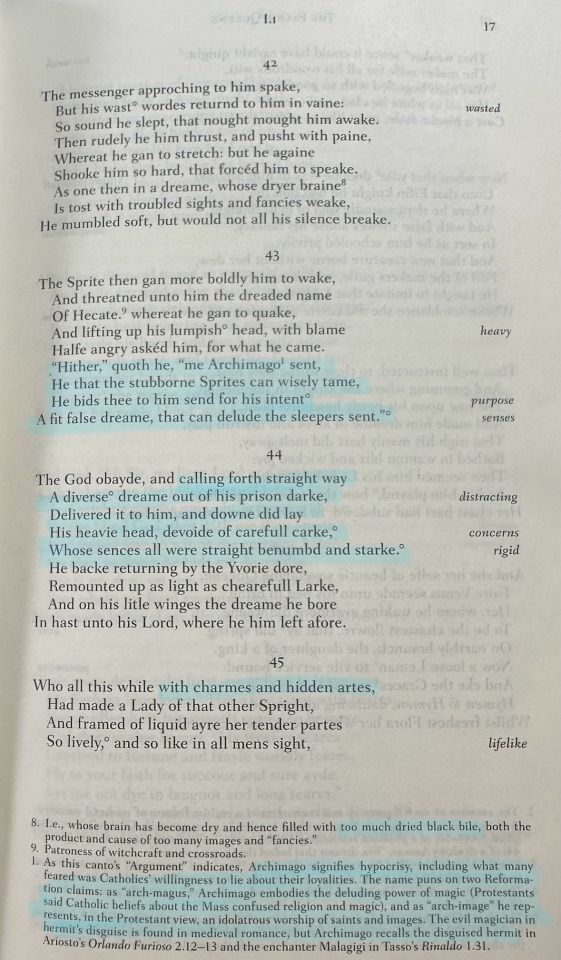
SGE Characters as Literary Things
(Not all of these are actual literary or rhetorical devices; some are just writing techniques, forms, genres, mediums, etc.)
This is a bit abstract, so I’m curious about how subjective these might be. Does anyone agree or disagree? And feel free to make additions if you think I left anything out, or request another character that isn’t here.
Hopefully this makes (intuitive?) sense. As always, I'm willing to explain my thought process behind any of the things I've listed.
Also, anyone can treat this like a “Tag Yourself” meme, if you want. Whose list do you most relate to, use, or encounter?
⸻
LANCELOT (I know—how odd that I’m starting with a minor character and not Rafal, but wait. There’s a method to my madness. Also, watch out for overlap!):
Metonymy, synecdoche (no, literally, to me, these are him.)
Zeugma
Analogy
Figures of speech
Slang, argot
Colloquialisms
Idioms
TEDROS:
Simile
Metaphor
Rhyming couplets
Rhyme schemes
Sonnets
Commercial fiction
Coming-of-age genre
Line enjambment
Overuse of commas
Cadence, prose speech
Waxing poetic, verse (not prose)
Alliteration
Kinesthetic imagery
Phallic imagery/sword sexual innuendos (sorry)
The chivalric romance genre
AGATHA:
Anaphora, repetition
Semicolon, periods
Line breaks
Terse, dry prose
Semantics (not syntax)
Elegy
Resonance
Consonance, alliteration
Pseudonym
Narrative parallels
Realism
Satire
SOPHIE:
Sophistry (yes, there is a word for it!)
Imagery
Italics, emphasis
Em dash
Aphrodisiac imagery
Unreliable narrator, bias
Rashomon effect
Syntax (not semantics)
Diction
Chiasmus (think: “Fair is foul and foul is fair.”)
Rhetorical purpose
Provocation, calls to action
Voice, writing style
Rhetorical modes: pathos, logos, ethos
Metaphor
Hyperbole, exaggeration
Sensationalism, journalism
Surrealism
Verisimilitude
Egocentrism
Callbacks (but not foreshadowing or call-forwards)
Narrative parallels
Paralepsis, occultatio, apophasis, denial
Hypothetical dialogue
Monologue
JAPETH:
Sibilance
Lacuna
Villanelle (an obsessive, repetitive form of poetry)
Soliloquy
ARIC:
Sentence fragments
RHIAN (TCY):
Unreliable narrator
Setup, payoff
Chekhov’s gun
Epistolary novel
RHIAN (prequels):
Multiple povs
Perspective
Dramatic irony
Situational irony
Chiaroscuro (in imagery)
Endpapers
Frontispiece
Deckled edges
Narrative parallels
Foreshadowing
Call-forwards
Foil
Death of the author
RAFAL:
Omniscient narrator
Perspective
Surrealism
Etymology
Word families or 'linguistic ecosystems'
Latin
Verbal irony
Gallows humor
Narrative parallels
Call-forwards
Circular endings
Parallel sentences or balanced sentence structure
Narrative parallels
Foil
Juxtaposition
Authorial intent (“return of the author”)
HESTER:
Protagonist
Allusions
Gothic imagery
ANADIL:
Defamiliarization
Deuteragonist (second most important character in relation to the protagonist)
Psychic distance
Sterile prose
Forewords, prologues
Works cited pages
DOT:
Tone
Gustatory imagery
Tritagonist (third most important character in relation to the protagonist)
KIKO:
Sidekick
Falling action
Dedications, author's notes, epigraph, acknowledgements
Epitaph (Tristan)
BEATRIX:
Pacing
Rising Action
Climax
HORT:
Unrequited love
Falling resolution
Anticlimax
Malapropism
Innuendo
Asides
Brackets, parentheses
Cliché
EVELYN SADER:
Synesthetic imagery
Villanelle
Foreshadowing
AUGUST SADER:
Stream of consciousness style
Imagery
Foreshadowing
Coming-of-age genre
Elegy
Omniscience
Rhetorical questions
Time skips, non-linear narratives
Epilogues
MARIALENA:
Diabolus ex machina
Malapropism
Malaphors, mixed metaphors
Slant rhyme
Caveat
Parentheses
Footnotes
MERLIN:
Deus ex machina
Iambic pentameter
Filler words
BETTINA:
Screenwriting
Shock value
What is your favorite thing about SGE series and why?
I have multiple favorite things, so you can expect me to elaborate for a while.
One of my favorite things from the series is Soman’s novel concept of "psyche travel," and for christening it with an actual name.
I’ve only seen this concept in a few other, more science-fiction or speculative type of stories, like the Divergent series, The Giver quartet, "The Veldt," a fascinating short story by Ray Bradbury (which TOTSMOV41 is very much inspired by) and the Artemis Fowl series, which involves time manipulation that wasn't strictly time travel (which is far more commonly seen in fiction). And I love Soman's more fantastical spin on psyche travel! To me, the concept was previously called "mental landscapes" or simply "simulations" of reality. "Psyche travel" as a term is just far broader and more versatile, and I feel like you could do more with it, experimentally.
In fact, I would've loved it if Soman could've left more room in his tight plots to explore human consciousness and "the cauldron of the unconscious" more in TCY, so I will be doing exactly that with the themes in my longfic TOTSMOV41. If anyone wants to know more about TOTSMOV41, I'll redirect you to this table of contents/introductory post.
My fic's entire premise reflects how much I loved that one scene in ACOT. It was absolutely brilliant, especially with the edited views of what reality once was, how subjective memory could be. Plus, in that moment, ACOT managed to combine a few of my major interests: psychology and how generally error-prone the human mind and memory are, surreal imagery in literature, and delving further into SGE’s soft, irrational/nebulous, thematically-relevant magic system. (The way I see it, problems are more often unintentionally created than intentionally solved with magic, and we understand little of it, what goes on magically, really, and can't logically extrapolate what the characters could possibly do said magic. So, the magic is framed as unstable and flexible, even while it does reflect the state of the world and the important relationships in the tales. Thus, that's how I might classify the SGE system. You're welcome to disagree on which type of magic system it is though!)
The following points are probably more obvious:
First, Soman’s prose and images overall are enthralling, and his use of VERBS, especially, rivals few authors that write for a younger demographic, at least in my opinion. It’s often just so well done. It's the little things, like using "scalded" or "pinked" instead of "blushed" that I love. Soman's use of language is so inventive at times, and I love trying to imitate it. Verbs can make or break a piece of writing in my mind.
Also, I love the extravagance and length and readability of this particular book one sentence that I think is underrated for the sheer exasperation embedded in it:
“After chastising her for slipping in the Ever ranks, explaining every assignment thrice, and berating her to cover her mouth when she coughed, Pollux finally left in a circus of hops and falls.”
It’s fabulously sweeping and exhaustive.
In addition, the third person omniscient pov is less common nowadays, I think. So much of middle grade and YA is in first person these days, so it may be a trend, for its immediacy. Though, I tend to prefer third person, even if my preference also generally depends on how well the work was executed.
I love SGE for its basis in fairy tales since I loved reading the classic Grimms' fairy tales before I discovered SGE—they were probably my favorites for a while (and still sort of are, alongside SGE). And they inhabited my storytelling before I ever discovered more subversive things existed. Thus, it's the overall darkness and the dramatics I find compelling about Soman's work.
The cleverness in the writing, when it’s well-executed, is phenomenal. And this applies to two aspects: first, Rafal, obviously, and second, the plot structure itself.
When I say Rafal, I mean specifically during the moments in which he shows off his conniving craftiness, his prowess at outfoxing others. And I love any instances of scenes in which he tricks or outwits people and systems.
Someday, I’ll have to remember to discuss the Fala-shoe-fairy-kiss scene from Fall, one of my favorites ever, in a future post. Those particular thoughts must be somewhere in my scads of drafts... I’ll have to look for them. For now, I will give you any thoughts I have now:
I'm referring to the scene in which Fala lures a fairy with a golden kiss and traps it in his shoe without a single word of verbal explanation, and he expects everyone to intuitively follow his genius thought process, the solution to their dilemma. Then, everyone, except Aladdin, manages to catch on, when they watch his demonstration.
Here's an (exaggerated?) approximation of how I'd imagine his internal monologue could've gone:
Watch and learn, youths. I’m better than you. In innumerable ways, and this is one. But fear not! I will lead you to success. No one else is capable of doing it. Yes, I will take on this burden myself. Give me all the credit. But don’t even bask in my cleverness, even if it deserves your attention. My actions speak for themselves. Just get the task done. Now. We don’t have all day to dilly-dally like inane cowards.
I will redirect you to this post, if you would like to read more about how I happen to interpret Rafal's "trickery," or rather, absence of trickery, perhaps.
And for my second spiel on the series' cleverness, elaborating on its predictable unpredictability, on a structural level, even if I only saw it in hindsight:
I love any kind of legerdemain or sleights of hand, or twisting of plots, except the devastating Fall one, I suppose. And there is something very characteristic of SGE I've observed: there are often, very, exceedingly late third act turning-points. These points are likely hallmarks of the series, to the extent that I've come to expect them by now, especially after Rise, and sometimes, I'm probably actively on the lookout for them when I read other books. Besides, Soman likes to lull readers into a false sense of security, that much we can probably confirm.
Furthermore, these turning-points seem to take two forms and you can literally only expect one of two things to happen.
It's either: 1) the characters reach a point of what should be a settled peaceable resolution, that is then rapidly negated, or 2) the characters reach a darkest-night-of-the-soul moment, the prospect of temptation in the story, often for an individual, and wishes are granted (often in subversive, unfulfilling ways to almost everyone's dismay).
Examples:
1) In Rise and TLEA: you think you are safe, that you're out of the dark Woods (which often represent the darkness of the soul or the human psyche as a symbol) but you're not. There is no built-in "warmth" to the narration, as Soman puts it in one of his interviews. This all is literally the narrative's "liar's tell" or "slip" in the third act, a revisiting of conflict, the reopening of the tale. You know there is more disaster to come. The ride is not over yet, however much you may think or desire it to be so.
In AWWP, characters say and believe the wrong things, are misled, and narrowly miss a possible "happy" ending because Sophie felt alienated enough to choose Rafal, who chose her.
In TLEA, we think everything is resolved, but all of a sudden, we get one more little impact, a jolt, that not all is well or completely restored, the moment Aric kills Lady Lesso.
In Rise, when Rafal is revived and reclaims the Schools from Vulcan, setting everything back into their original, proper forms, back to order, we think we've averted all crises, and have reverted back to the status quo. But, that resolution, again, is only momentary. Supposedly, Rhian's Evil, his rot, was awakened, and the moment Rafal considers leaving again and does, to seek out a new replacement student, is when the plot begins to race downhill again. When Rafal leaves, he leaves a gap for Rhian's poor judgement to bleed through, and Rhian hires Hook, effectively setting off the second wave of awful plot events in Fall. Rhian sort of resurrected old conflicts, and breathed new life into them.
2) Before the Great War in TLEA and the climax, we get tonal signposting that nearly "all is lost," that we're approaching, marching towards our imminent demise. There's an ever-present fog of "Abandon all hope, ye who enter" because if there's anything Rafal's good at, it's cultivating an air of stifling oppression. Hence, we have the narrow aversion of the darkest moment:
Agatha (unlike prequel Rafal with Evil Rhian) doesn't use the wrong emotional appeal. She gets through to Sophie, she and Tedros aren't executed, and Sophie destroys the ring, killing Rafal. Despite everything that said otherwise, that said Good would lose.
Lastly, a few other bits I appreciate are the roles the Seers play in the series, the meta aspects of the Storian (or Lionsmane) and the tales in general, and the names of a lot of the proper nouns such as the kingdoms—I don't know why I love some of them. The alliteration is oftentimes fun, and the names feel right and plausible.
Had to reblog this one because 1) the DRAMA and 2) BLOOD. He pulls off blood so well.
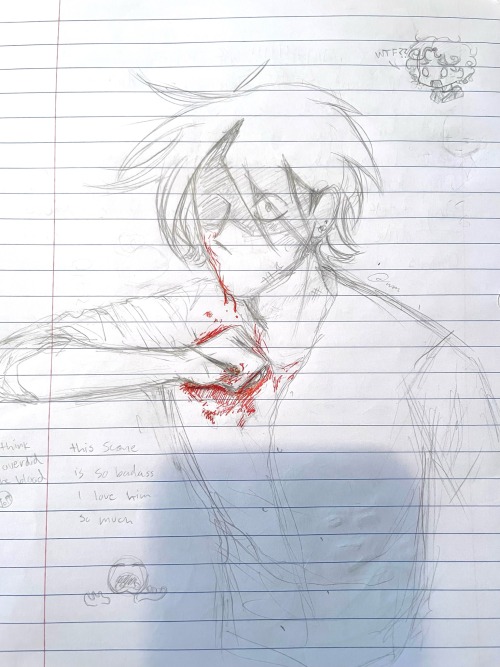
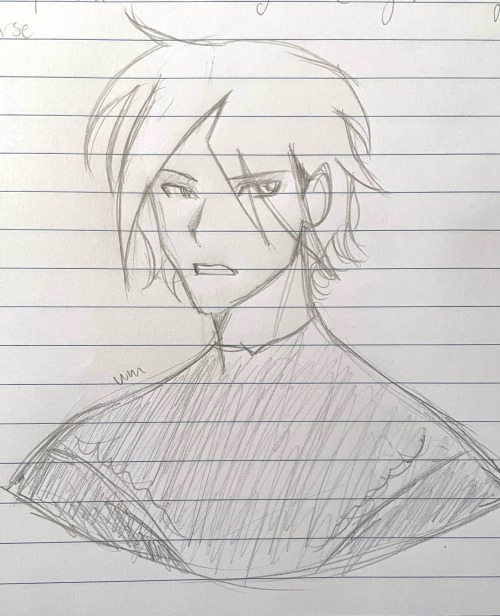
! blood warning !
some quick and random rafal sketches i did at school because i was bored (and also because im procrastinating with actual content i fear)
i've always imagined rafal taking the storian out of his chest in that one scene in rise to be the most cinematic thing ever with a lot of blood... yeah
page two?
This page is actually page 10 because the fic doesn't actually start until page 9 of the document. Also, this page is very messy and unwritten at the moment (I'm still playing with the wording and sequencing a lot), so hopefully, it's comprehensible. For context: Sophie is having a nightmare.

decay sounds more gentle than rot. when something decays, it is gently taken apart in it's comfortable eternal slumber. when something rots, it's violently taken apart with agony. in this essay i will

Fic cover! 🍷 📖 🦆 🐦⬛ 🔥 🩸 🖋️ 🧂 💔
Salt & Storybook
This fic is also available on Wattpad or AO3, if you would prefer to read it elsewhere.
⸻
@heya-there-friends and @wisteriaum Yes, the whump fic is out! And here it is!
Hopefully, if I meet your expectations, I’d be like a magician announcing an act:
Step up, one and all, Evers and Nevers, young and old—step right up to witness the death-defying struggles of one Rafal Mistral! The great Rafal, horrifically maltreated by his own Pen, tortured within an enclosure of his own “design!” After all, there is no rest for the wicked…
Anyway, have fun. I sure did. Ngl, whilst I wrote this one, it kind of became a laugh riot at Rafal’s expense. So, don’t kill me. I’ve done a lot of damage.
CONTENT WARNING:
If you do not like dark humor, graphic depictions of violence and injury, and/or do not like the thought of Rafal being physically tortured, please, do not read this fic, or read it at your own discretion. I do not want to upset anyone. So, that is why I’m telling you this now: that probably, by most standards, I’ve been really cruel to him.
The fic contains the following:
Alcohol, vandalism, book burning, physical assault and punishment (by the Pen), disproportionate retribution as revenge, some swearing on the milder side, depiction of injuries.
Thus, potential for violence in my TOTSMOV41 WIP aside, this is literally the absolute meanest I’ve ever been to Rafal.
And, Rafal is a bit of a silly goose (not in a good way) due to his impaired judgment. Though, I tried to keep him in character. Rhian should’ve grounded him in the absence of their parents. But it was too late.
Summary:
Rafal does some much needed “spring cleaning” to remove every trace of Vulcan from his tower and gets far more pain than he bargained for in return.
Or
Rafal has an idiotic episode after the resolution to the Vulcan fiasco while Rhian is oblivious.
Context:
This fic takes place during Rise, shortly after Vulcan’s murder and slightly before Rafal’s renovations to Evil and his torture of the Never students.
It is also somewhat plotless, so I could call it a character study. The exposition part towards the beginning was essentially my premise for writing the whump in the first place, which is why there is some lead-up prior to the action.
⸻
With an impish gleam in his eyes, Rafal blasted the glass display cases Vulcan had left behind to smithereens, spraying the stone walls and floors of his tower with razor-edged shards and splinters of glass.
Then, from Vulcan’s black desk, he dashed a cluster of black crystals to the floor for good measure.
The floor crunched underfoot with every step he took, a mosaic of inedible salt and pepper, as he whistled the shanty he’d composed, mentally gliding through the lyrics:
I asked the queen. . .
What is more pathetic than a Vulcan?
She said: Nothing I’ve seen!
He ground the shards into the grooves between the stone tiles, pulverizing most of what remained. The coarser flecks of glass dust caught in the traction of his boots, and it struck Rafal that he’d have to sweep up his mess before Rhian accused it of being a hazard to their eyes or lungs. Ah well. One more task to add to his steadily growing list. But it was all worthwhile.
No longer would his chambers be a stultifying “museum,” dedicated to the past exploits and conquests of that vile man. It was first and foremost his study.
Rafal sunk into one of the leftover black leather chairs, the one by the desk, and picked up the wineglass he hadn’t been attending to, swilling the garnet liquid around before taking another sip.
Just yesterday, when the brothers had supped together for the first time in six months, Rafal had gotten into an argument with Rhian about the restorations to be made to the silver tower and all the changes he’d already enacted in his School and its curriculum.
He would rather have lived in a bare cell than spend a minute longer in the company of Vulcan’s things, but Rhian had objected, saying the enemy’s furnishings were better than none at all.
And Rhian had further countered Rafal’s calls for immediate action, claiming they had all the time in the world, and to not be childish and impatient. With time, Rhian had said, he could devise a tasteful, new decorating scheme and between the two of them, they could even enjoy all the odds and ends Vulcan had left lying about in his wake.
Yet Rafal was having none of that. Their first order of business was not mindlessly pleasuring themselves but removal—no, it was the complete erasure and sterilization of the premises. That’s what would be done with the remains. Not the human ones though.
Rafal had eventually relented on that matter as Rhian had staunchly drawn the line at Rafal mounting Vulcan’s severed head on a wall as he’d once said. Thus, the head was discarded before it ever had the chance to rot.
Aside from Rafal’s efforts to claim a mortal trophy to no avail, everything else was proceeding smoothly—contrary to Rhian’s wishes. Rafal was still adamant that everything which so much as stunk of Vulcan’s musky cologne vanished from their sight as soon as possible. After all he’d endured to retake their School, he deserved to have his way, that much Rhian owed him.
Glancing out the window, he observed phase one of his plan already coming to a close as his chest swole with heady, vinous pride.
That very moment, thick, churning smoke laden with ash clogged the skies overhead, curling around Evil’s spires—physical proof he had retaken his School.
He stood up and inhaled the noxious fumes and drained the rest of his glass before setting it down again. He was recommitted all right. Here, he’d remain, ’til the end of time.
The spectacle far below was truly a sight to behold. Rafal had burnt the entirety of Vulcan’s life’s work in a great, purging pyre.
Gone now were the steaming, taxidermied bats, the mirror of molten, incandescent glass, the barechested portrait, warped and discolored, and more grotesque than ever, the deformed periscope Rafal had knocked the lenses out of, and the desiccated roses with their petals flaking off into the ether—it was all worthless memorabilia, everything, transformed into a charred, lifeless, amorphous mass that still smoldered this very hour, the objects caving in on themselves, the dying embers retreating into the disordered miscellany.
Rafal set his glass down, hesitated, and poured another up to the brim in celebration. The rising heat was hellish.
All that was left to do was buff away the gilded bats carved into the stairs and he would be rid of that loathsome viper forever. Then, his chosen renovations and agenda would commence, carried out by Humburg, his Stymphs, and the Man-Wolves.
But, he couldn’t get ahead of himself. He sipped from his glass, savoring the bitterness of the red wine, and set it down firmly.
Then he set to work, freeing the storybooks.
The benighted Vulcan had stowed the tales away in massive, black leather chests that had been ignorantly shoved aside, stacked slantedly like a slag heap in half-shadowed corners.
Coarse, drunken pirate. The imbecile was wholly unfit to direct the course of Evil’s future. Only Rafal could be capable of manning such an operation, charting such a course for the students once again under his eminent tutelage.
Hand aglow with black, he whisked his glass off the desk again, floating it over to himself, and took another swig before setting it on the floor beside him. He’d cleared away a small oasis for himself to sit in, until he swept up the shards decking the floors all around him.
The alcohol burned his throat, matching his surfacing rage as his head clouded.
No one would replace the storybooks on the tower’s shelves if he didn’t, he thought resentfully.
His brother had done enough damage already. Enough was enough. He wasn’t Rhian’s personal manservant. What a degrading role that would be.
But Rhian never remembered to clean up after himself, and the books had to get onto the shelves in some way or another.
Rafal exhaled. His brother was in dire need of a lecture, but first, Rafal carped to himself, the task of cleaning up lay before him.
He and he alone would restore the storybooks to their former, casual glory in their places of honor, just as the brothers themselves had been restored by the Pen.
Naturally, Rafal stacked all of Evil’s tales at the top of the tower’s shelves, for his own reference. Rhian surely wouldn’t quarrel with him after all the work was done.
Besides, it was true. Rafal was the only one willing to do it all. To forge order out of inscrutable chaos, mogrify the failed students at every class’ graduation, attend to the Stymphs, clean up the rubble, execute invaders, burn up the corpses—he took on all sins, all so his Ever brother wouldn’t have to lift a finger and stain his hands.
All for naught, was it?
No, Rafal consoled himself. Definitely not. Rhian couldn’t be trusted to do a thing.
Rhian was too cowardly and weak to handle the more gruesome chores on Rafal’s roster. He’d invited a numbskull substitute in, to replace his own brother with.
That batty substitute had no place in his School. Vulcan hadn’t even been a true Never. Not in name or in memory.
Rafal lifted his glass to his lips and tossed back more of his jewel-toned drink, blood and heat and vigor rushing to the surface of his alabaster skin.
If he had missed anything, every piece of evidence, every last little shred of a reminder would be burnt to the ground, even if it took both castles down with it, he decided right then and there. He would will it to happen.
He set his glass down on a stone tile.
No matter if the taxidermied bats could’ve raked in a tidy profit. He didn’t need material wealth when he had sorcery. The usurper’s mere presence had overstayed its welcome and Rafal intended to do something about it.
He picked up his drink again and downed half of it, swallowing the wine quickly as the rest sloshed onto the floor, glinting a deep ruby in the dim, afternoon light.
He scowled. More mess to clean up.
Rafal squeezed the fine, crystal stem of his wineglass with a vise-like grip. It snapped in two—just like how he would snap Vulcan’s spine in two, if the man ever dared return from the dead.
The glass had splintered under the pressure he’d applied, needly slivers sticking into his fingers, pricking his palm, until his pale hand was dotted with pinpricks of blood.
As always, the blood suctioned itself right in, drawn back by an invisible force, and the pinpricks sealed themselves up.
Rafal tended to cast off pain with ease, like it was just another one of his overcoats. By now, he was numb to little cuts like these, unlike his foolhardy yet absurdly delicate brother.
He scraped himself off the floor, up to his feet again, and staggered over to the last chest.
Then, he thrust the chest’s weighty lid back, and lifted out the first stack of storybooks.
His fingers grazed the gold-foiled title of the first book in the stack.
In a glaring, grandiose script, the tale’s cover read: THE UGLY DUCKLING.
Duckling.
Rafal grimaced as his temper flared, revulsion climbing up his throat. Then, his resolve hardened. He’d vowed to strip this place of Vulcan, and he would.
The other storybooks fell out of his grasp and clattered to the floor, face up at the one still locked in his grasp.
Duckling indeed.
Rafal flipped the front cover of the storybook open and tore out a single page.
The page sailed down and landed at his feet, settling lightly atop the broken display glass and fragments of wineglass.
Then, he grasped a stiff handful of pages, the heavy paper twisting, warping only slightly, and finally bending in on itself as he wrenched it apart from the book’s spine.
The paper’s edges sliced into his hand, drawing blood from cuts that vanished as soon as they appeared.
He let the handful he’d ripped out scatter to the wind.
Some pages flew out the window. Others dropped into the greedy, licking flames of the fireplace, curling in on themselves, blackening, joining the soot.
The rest of the pages, he extracted one by one, methodical in his process, tearing each painstakingly lettered sheet from its seams, which had been sewn together with care, as if he were plucking feathers from a wild fowl to be cooked—now, just a hollow, pageless shell of binding left in his hands.
Without a second thought, Rafal slung the storybook’s empty binding into the bright, steadily burning fire.
It caught on the fireplace’s grate, angled like a broken bird.
Rafal heaved a great sigh of relief. Gone. At last.
Then, fully satisfied with himself, he surveyed his efforts at cleaning up, even if the room looked worse than how it had begun this morning. Still, he cast his gaze over the terrain of reshelved tales, spilt wine, scattered glass and black crystal, and the few, loose pages pinned to the floor, wedged underneath the broken glass, fluttering in the breeze.
Despite everything, he felt accomplished.
It was only when he caught sight of the Pen, suspended and still, that he remembered he wasn’t alone. He was being watched.
Not long before, the Pen had stood, vertically suspended in the air over its lectern, its gleaming metal cool, but now, it scalded hotter and hotter, angrily searing hot as a branding iron. Then, it tilted, tip glowing red like a reproachful eye.
Rafal simply stared back, waiting for the Pen’s response. Yet, it did not move, a fact which puzzled him.
The Pen’s tip brightened to a blinding, radiant, white pinprick, as if it were readying itself to defend its tales from the scourge of Evil it had allowed to take up residence in its tower.
Rafal squinted at the light. What was it up to?
That was when he glimpsed something launching out of the fireplace in his peripheral vision.
The storybook’s binding rocketed out from its resting place, where it had nested in the grate, flying at him like a missile, sizzling through the air, like a shot bird with its flaming wingspan spread, its front and back covers open, its spine cracked.
A corner of the binding struck Rafal square in the eye. Hard.
Only one foggish, halfway lucid thought flashed through Rafal’s mind as he squinched his eyes shut: It was taunting him. Mocking his flight.
His face gnarled in pain as he doubled over before crumpling to the floor like an ungainly egret.
Splayed on the floor, Rafal hissed, clawing at his eye, knocking the smoldering mass away from his face. Then, he drew himself up into a crouch, his torso supported by shaking forearms, his hands pressed against the glass-strewn floor, jagged edges cutting through the fabric of his slacks at the knees and into his palms as he tried to sweep some of the fragments away.
Hell. Just Hell. He should’ve cleaned up sooner.
He supposed he was done with cleaning today, come what may, and that he should get started on the glass.
Yet first, Rafal strained his neck and examined his distorted, many-eyed reflections in the shards beneath him, prodding the skin near his wounded eye. His fingertips came away with bright blood.
A few areas of his face still bled slightly, gradually mending themselves, thin rivulets of blood trickling down his neck, criss-crossing in a fine, thorny latticework, ultimately staining his starched, white shirt collar.
He rose to his feet slowly and latched onto a shelf as he faltered for a moment, attempting to regain his balance. Then, he drew himself fully upright again, as if nothing had happened. And, with one hand still gripping the shelf’s edges, he unbuttoned the top button of his shirt, the one, restrictive one that always pressed against the base of his throat, so he could breathe properly and catch his breath.
Rafal sighed in relief. He’d served the absurd, seemingly arbitrary punishment the Pen had dealt him and it was now well over with.
Then, the Storian moved.
His every muscle tensing, Rafal clutched the shelf harder as it creaked under his death grip, his knuckles white as bone. About to bolt for the open window, he realized his legs were stiff and cold, a cramp shooting through his side from his last fall.
Straight as an arrow, the Storian tore through the air toward Rafal, dead set on harming him.
By some miracle, Rafal caught the Pen, letting go of the shelf as he dropped to the floor, not without taking the entire floor-to-ceiling bookcase down with him.
Rafal willed himself not to scream as his eyes widened in horror at a great shadow looming over him, deepening seconds before the crash as vertigo overtook his senses.
Were the pages whirling around him? It couldn’t be bats amid those ink-hatched illustrations. It couldn’t! Not when Vulcan was gone. Not when Vulcan was dead.
As it neared, the bookcase grew larger and larger in Rafal’s sightline, rushing forward rapidly, encroaching on him, almost eclipsing him. Blood roared in his ears and rushed to his head tossed back at a perilous angle, right before he shunted himself back, turning, his back towards the storybooks’ spines, as books fell out at random, several hardcovers hitting his flailing extremities as they poured out and passed him by en route to the floor, one solid thud after another.
The bookcase had narrowly missed his core, but it had trapped his legs, pinning him to the floor, slowly leaching away his vitality as his head swum and his vision dimmed, turning to a feathery blur.
All the bones in Rafal’s legs had shattered upon impact, when he made contact with the stone, bone spearing through his split skin, drenching his pant legs in hot, rapidly clotting blood as he choked aridly on what little spittle he had, too parched to scream, blinking away the blackness at the edges of his vision.
His bones immediately started to knit themselves back together, but refused to heal completely, for, the soul-crushing force of the bookcase still bore down on him, mincing all the unrepaired fragments in his legs.
Leaning on his elbows, Pen still clasped tight his grip, Rafal set his jaw, soldiered through his faintness, and tried to drag himself forward, out from underneath the suffocating weight of history, scraping slowly over the flagstones still littered with glass.
Suppose his bones joined the shards. Then what?
He freed his hips and one of his legs, struggling further, but found he was effectively immobilized for the time being. Only his ankle was caught now, but it would’ve been unwise to dislocate his leg from its socket by yanking it any harder than he was already.
The structure of the shelf collapsed further, the more he struggled beneath it, like a snare closing in on a bird, threatening to cut off its circulation—but if he could just loosen his foot from these damn planks, it…
It was like the Pen wished to teach him a lesson by entombing him, entombing him here, under the weight of every fairy tale he’d ever taught.
Rafal’s face burned.
EVIL SCHOOL MASTER ENCASED AMONG MANUSCRIPTS—he could picture the words emblazoned atop every paper in the Woods, documenting this final humiliation, all the next day’s headlines shouting and blaring in Rhian’s face.
The Evers would pop champagne bottles. His students would dance over his grave—dancing in the chequer’d shade… come forth to play, on a sunshine holiday—how’d that line go? And which tale was it from?
Wrapped in a delirium, he thought of the sprawling tale of Satan’s fall. Demon, chastened and exiled. Hell. What had he gotten himself into? Hell.
At least Rhian would mourn him, he thought grimly, and shook his head, his rage simmering. The boards wouldn’t loosen around his foot!
Rafal swallowed a heaving breath and let it settle in his chest like a stone. There he lay on his bed of glass, still holding the Pen, now hoisting it aloft, over his stone-abraded face, as it glinted in the light, his arms outstretched in a perverse kind of victory, absolutely sloshed and nearly slain, by his own shelf, by his own Pen, by his own hand.
Another thought surfaced suddenly, unbidden: He could lift it all with his sorcery.
But at that thought, the Storian sparked to life.
Hell. That Pen. To Hell with it.
The ancient script running down the side of the Pen glowed and cast shadowy glyphs across the floor, refracted light catching in the glass, piercing Rafal’s eyes, and the strange markings heated, the Pen’s shaft scorching against his palms, causing Rafal to loosen his grip slightly as he tried not to let go.
Yet, the Storian prevailed and wrested itself from Rafal’s grip, slipping out from his fingers with ease, likely readying itself for a second wave.
Gritting his teeth, Rafal steeled himself for action, both hands alit as he at once summoned the last of his magic, drawing from his deepest reserves, from his lifeblood.
Working through his total exhaustion, he managed to lift the bookcase up at a modest tilt, by only a few hairs’ widths—yet that was enough for him to crawl out from underneath it.
He hauled himself up onto his feet again with most of his weight distributed on his better-healed leg, thinking about slaking his thirst, punishment presumed to be over.
Just then, a cool gust of wind blew in, battering the diaphanous, silver curtains Rhian had put up, as if it meant to revive him, and Rafal turned away from the Pen to the window.
That was the moment the Storian chose to attack with a new vengeance, redoubling its efforts against Evil incarnate.
Some unseen force from within the tower flung Rafal across the chamber, casting him onto his side as he skid across the dining table, long limbs catching in the folds of the tablecloth, his obtruding form sending Rhian’s once deftly arranged table settings—now clashing utensils and dishes and glasses—flying before they smashed against the far wall along with Rafal’s skull as he clenched his teeth at the sheer percussive force of the collision.
To wit, it had to be the Pen. What else? Rafal griped. A fairy-tale punishment fit for a fairy-tale villain?
His ears rang with the strident sounds of shattering bone china and clanging metal, ricocheting off the wall as plate shards rained down on him, the whole tumult reverberating like he was trapped in an echo chamber with a cavalcade.
The din resounded as his side throbbed and he kicked blindly at the bonds of tangled tablecloth wound around his legs. Part of the white cloth had settled over his head, draping like a sheet, and he couldn’t see anything, couldn’t see any of the ruins about him, much less sit up.
Finally, he tore the cloth back viciously, reclaiming his sight in a huff. Apparently, a singular knife had skimmed past his heart and had instead lanced through the flaccid fabric of his shirt, burying itself between the stone tiles.
Rafal groaned and turned over rigidly, his shirt tearing around the knife blade as he settled for lying prone, bloodied cheek to the floor, small cuts abound, droplets of blood blooming across his shirt and the tablecloth.
Then, Rafal rolled his eyes back to the ceiling and noticed the Pen hovering above him. He dealt it a withering glare from below, not yet beaten into submission, and reached upwards with tremorous arms to grasp at it.
The Storian appeared to glare back as it flitted out of his reach, darting back and forth archly as if to tease him, rendering all his exertion futile.
That was when the Storian made to invoke a final crescendo to complete Rafal’s torture. It descended on Rafal with an exhilarating swoop as the School Master shielded his eyes, burying his face in his shuddering arms, bracing himself for excruciating pain, fervid blood coursing through him as he tried to propel himself onto his feet and act, but he felt as if he’d sunken into the floor. He couldn’t move!
And the Storian didn’t hold back.
Its nib ripped through the back of his shirt, tip to flesh, sharp as a spindle, glowing with white-hot ire. It then raked over his exposed back, his neck, and the back of his arms.
Eyes watering insanely, Rafal hissed and rasped for breath, abject fury surging through his veins. A strangled gasp left his lips—he wouldn’t have been surprised if he’d been choked to death by his own slit throat.
One stroke after another, the Storian lashed across his skin, slashing with a capricious flourish.
He was sure that it intended to flay him alive, and he’d never gotten the chance to say goodbye to Rhian, he thought morosely, head dulling.
These cuts were worse than the time the vampiric, literal blood-sucking, ruby-throated hummingbirds of Akgul had swarmed him. The Never mining kingdom bred them specifically to flit around, slit the throats and tear to shreds the clothes of any passerby who ventured too close to the vaults which were filled to the brim with riches.
Those cuts had been shallow, mere scratches that had closed in a matter of seconds. These lacerations were flesh-deep.
And the Storian didn’t cease moving. Again and again, it slit open his flesh.
Rafal choked out another gasp and pressed himself into the serrated glass and crockery below him as if he could escape the terror above, and shifted onto his side, realizing his mistake immediately as he remembered.
The salt.
The night before, his routine dinner argument with Rhian had culminated in his act of hurling a glass salt shaker at his brother’s swollen head, for being pompous and self-righteous that day.
Naturally, Rhian had become upset last night—not just because he’d been clocked in the head and not just because Rafal had obstinately accused him of being an aesthetic-obsessed egomaniac—but because, of course, this all had happened after Rafal had already swept three dishes onto the floor that selfsame week and broken them.
Smashing the fine china had started to convert itself into a regular dinnertime event, much like an extravagant, exceedingly costly, burlesque sideshow. Predictably, Rhian had insisted that bone china plates were a rank pain to replace. And then, he proclaimed that if this, this breach, this delinquent conduct, continued, he would never dine with Rafal again. In sum, this was his tirade directed towards an unresponsive audience of one, one thick-skulled, unsympathetically glacial brother, all the while dramatically bemoaning Rafal’s dramatic tendencies.
Shortly after, both brothers had refused to clean up, each claiming the mess was the other’s fault, Rafal alleging that Rhian was the source of his provocation, that Rhian drove him up the wall and had thereby caused him to lose the plot—and break his tenuous accord with the Pen since it had last resisted his will over the matter of Aladdin’s placement.
And, the miserable result of these acts was that the salt shaker had cracked open and emptied all its contents—all over the very tract of tower floor Rafal had just rolled over onto. All due to the Pen.
Damn the little devil! Rafal fumed, writhing as his flesh was stuck by glass shards and the spilt salt needled its way into his fresh cuts, aggravating them. And his cuts weren’t healing! Instead they stung. Even the shallower scratches hadn’t closed.
The Storian sliced his front, nearing his throat, as he tried to suppress the feeling in his every nerve, awash with a sense of mounting dread as his own movements repeatedly caused him to be pricked by splinters of glass and the rough, tearing grit of the salt, recurrently entering his open wounds.
Why had he thrown the salt at Rhian when Rhian had simply asked him to pass it?
And now, he was paying for his deed. He’d only compounded this, this agony, and the Storian was making sure he knew it.
How much of an absolute sodding fool he was!
Rafal thrashed further, and spat blood in protest once more at the infernal Pen, choking on nothing but air as his tongue went dry and his voice died in his throat.
His eyes turned bleary and itched. It was as if he could feel his nerves drying out and dying with every passing second as the salt absorbed his blood, the skin around his cuts shriveling, even if the cuts themselves widened, rubbed, and stretched open by the salt and debris, which irritated him like sand would’ve, if not for the chemical burn—the prickling, electric flares of sharp, white-hot pain.
And yet, the corroding burn shocked him awake with a revelation, shearing through his senses that had been suffused with the duller pain’s veil.
What if this torment wasn’t just punishment for desecrating a storybook? It was a petty, Evil act, to be sure. But wasn’t that to be expected from him? Why would the Pen retaliate like this then?
And what if it wasn’t just punishment for vandalizing the Pen’s tower? What if he was expected to apologize to Rhian?
Never. What an indignity that would be, he rejected the idea like a foreign body, then stiffened at his first instinct.
But could apologizing be any worse than where he lay now? Perhaps, he should. If he lived through the Pen’s torment, he probably ought to.
In that instant, his vision whirled, reddening, and his body betrayed him, surrendering to the Pen as he blacked out.
⸻
Rafal’s breath hitched as he returned to consciousness. Had the Pen yielded?
He fought to turn his head as he glanced over at the Pen, watching him from across the chamber at a tilt.
Then, the Storian righted itself, stationed back over its lectern, dormant, as if nothing had befallen its master, once again turning a blind eye to Man’s treachery when doing so suited it, as it always did…
A fairy-tale punishment fit for a fairy-tale villain.
What scraps remained of Rafal’s shredded shirt clung to his lean frame. The fabric was soaked through with blood. He shut his eyes for a moment and inhaled. He’d have to peel it off in the bath, likely.
As he sat up, the muscles in his back twisted, exacerbating the pain of the gashes crossing his back, which still stung, continuing to bleed.
The blood loss wouldn’t be fatal, Rafal knew. But, he wondered whether the Pen would let it go on until he fell unconscious again.
His blood wasn’t clotting regularly and it was all the Pen’s fault, for its magical interference, preventing him from healing any quicker than he usually did.
At this rate, he couldn’t foresee the Pen granting him relief from these wounds—not when it believed he deserved to live so he could suffer. All he could do was staunch the bleeding.
Rafal clambered to his feet for what he hoped would be the last time, stumbling forward before he thrust out his arms to hold onto the edge of Vulcan’s desk and keep himself from falling.
He decided to seek out bandages, or rather, any strip of fabric he could tear, save for the tatters of his grimy, thoroughly bloodstained and oxidized shirt, which looked a rusted brown, far from its former, crisp, white state.
The curtains. The curtains would serve well enough. He hobbled over to them, lit his fingerglow to assist himself, and tore away a strip from the gauzy swaths of fabric, shooting the Pen another glare as he trod, breathless, towards the bathroom.
Once within the bathroom, he planned to run himself an ice-cold bath, but first, he’d run the cuts on his arms under the water for a while, to numb himself, so he could recover a greater range of motion.
No need to undress. His clothes were unsalvageable at this point, and he was certain his brother would agree.
Then, anticipating the reprieve of the biting chill, he bent over to turn on the tap, and did not realize that he’d overcorrected himself, headrush returning, knees buckling, as he pitched forward and slammed face-first into the faucet, passing out.
The bathwater continued to gush and his blood continued to flow forth, mottled bruises already forming across his severe pallor.
Rafal’s body slid partway into the tub, and he awoke minutes later, wracked with a dull ache, half his frame slung over the side of the tub, smeared with blood. His head jolted up, hit by the faucet a second time, as shock permeated his body, which was half-submerged in the frigid, faintly pink water. Not that he could truly sense the cold.
He tried to collect his bearings, but found he didn’t want to move any longer. Nor could he. But he figured he’d wait out the pain, or numb it. Whichever came first.
Albeit, when he sat up, extraneous heat still streamed through his body, radiating outward from his core to his extremities, and he doubted the swelling about his cuts would recede that soon.
Fortunately, he couldn’t catch a fever. He was immune to all illnesses… unless the Pen revoked his immortality. Though, he’d be fine alone. And besides, he had no time to brood.
Rafal stared down at the lacerations lining his forearms. New, youthful skin was already beginning to pave over his cuts, at an imperceptibly slow rate, even if the process hurt like Hell.
To pass the time and staunch the blood, he conjured up strands of gauze bandages that unspooled in midair, allowing them to turn rounds, to twirl and spin before his eyes for an infinitesimal moment before he seized them.
Then, he wound the bandages loosely around his arms, making a poorly-executed, overall hack job of it as his stiff, frozen fingers lacked the dexterity required to tighten them any further.
Well, that would have to suffice for his purposes.
But, no sooner than when he tied the last bandage did he realize the gauze on his other arm had to be replaced since it had leaked through, sopping red once again.
Nevermind.
A copious number of bandages dangled from his outstretched arms as he shuffled back into the main chamber of the tower like one of the undead.
There he sat as the day turned to dusk, stewing silently, tending to the rest of his wounds, awaiting Rhian’s return, applying layer after layer of rapidly reddening gauze.
At last, when he was partly wrapped up, he resembled a dehydrated corpse that would be preserved for the rest of time, forever bound to his duties, like one of the undead, who hadn’t the mind to know when to let go, tugged along by the colorless skein of an immortal life.
He didn’t bother to light a candle.
⸻
As Rhian ambled up the tower staircase, he hummed to himself under his breath and wondered if Rafal had left him any wine. His brother was often a spoilsport and Rhian wouldn’t have been surprised if Rafal had tossed their last bottle.
He took stock of his mental checklist while he continued on his ascent. He’d left Rafal alone for the day, after their tiff last night. Perhaps, Rafal would be ready to apologize. But Rafal was often stubborn, and Rhian suspected he was still sulking.
Brothers. They were such work.
The new furniture he’d ordered from Gillikin would arrive by the School’s shoreside tomorrow, so the place had to be spotless.
Without a doubt, Rafal had finished the spring cleaning by now. And petulantance aside, Rafal never could stand disarray, so surely, he could be trusted with that simple of a task.
Indeed, maybe the Pen really was on his side, and Rhian could check that item off his list now.
He set his foot on the next step, and flinched at a cracking sound.
Rhian peered down at a fragment of glass, cleft in two.
That was odd. Rafal had probably missed a spot when he’d taken out the rubbish, Rhian reasoned, his stomach turning with a twinge of anxiety. Nothing to fret about. Nothing at all.
Rhian knelt down and picked up the shards, stuffing them into one of his jacket pockets. He had to remind Rafal about sweeping up after airing out the place—speaking of which, not one of the windows Rhian had passed had been opened. The air was stale, and it seemed that Rafal had forgotten.
Rhian sighed. He would do it himself later, before his shower. He’d had a long day of curriculum reform as his brother had demanded he add a new section to Surviving Fairy Tales, about distinguishing Good from Evil, because, Rafal had jabbed, even Good’s Master direly needed a refresher when he’d invited the worst kind of Evil into their School.
As he proceeded on his climb, Rhian observed that the stairwell was coated in dust, like it had been beset by a cyclone of some kind.
Now, it wasn’t unlike the Nevers themselves to bathe in dust, but their School Master was definitely above poor sanitary practices, at least regarding himself, if not his renovations. And yet, every surface was saturated with dust, oddly granular dust, that drew blood when Rhian pressed a particle of it between his thumb and forefinger.
Rhian winced at the stinging sensation, knowing his pain would fade soon. Was this glass? He’d told Rafal he didn’t want to compromise their lungs! But Rafal never listened.
Rhian watched as the blood seeped back into his skin, that closed where he’d been pricked. Well… that was a comforting sign. His bond with Rafal was still intact despite last night’s conflict.
He made his way further up the stairs. It was a moonless night and he only had the stars to see by.
Stray storybook pages flapped in the stairwell, and the steps were riddled with more glass dust and drops of blood?
What if they had been besieged by another intruder? Another Vulcan? That would explain the glass. What if Rafal blamed him for allowing an uninvited guest to break in? Had he cast the entry-sealing spell when he’d left their tower that morning? Or had he been preoccupied by, by Storian knows what! He couldn’t remember now.
Heart thrumming, Rhian raced up the remaining stairs in a panic and flattened himself against the wall by the entryway to the tower’s main chamber, to listen.
All he heard was the echo of rustling paper and the cool night wind.
Rhian lit his fingerglow. It burned with warm, pure, golden light, gilding the stones around him. He would vanquish any threat that lay ahead of him. And if Rafal was there, they’d face it together.
Trembling, Rhian swept the presumably monster-clawed, blood-encrusted, silver curtains aside, unsure of what dark horrors he’d be met with in the confines of his own home.
Stepping softly over the threshold, he picked his way into the pitch dark chamber, gold fingerglow illuminating the space, as a scene of total carnage flashed into existence.
Rhian gaped as his eyes flicked across the blood-spattered floor, his light spilling onto it and bouncing back into his eyes. All he saw was pure upheaval. The fire had long since guttered out as it had consumed all of its kindling. An entire bookcase, overturned. Water, pooling out from beneath the bathroom door, circulating along the grooves between the stones. And the tales. They had clearly flown across the room, tossed about erratically, like they’d been subjected to a storm at sea. And—
His gaze landed on a stooped figure with a ragged, irregular breath, shielding its eyes from the sudden flare of harsh light.
Rhian’s breath caught. Was it a Night Crawler? Or some other lethal creature of the night? Some undead thing? He backed up.
Finally, Rhian’s eyes adjusted to the light—was that Rafal?
He squinted down at spikes of snow-white hair, matted with blood, then, eyes widening with recognition, surveyed Rafal’s baffling state of partial undress. Rhian’s distempered brother had propped himself up at the base of the fallen bookcase, and hadn’t risen from where he sat.
Rafal stared up at Rhian in the lit doorway without a word, his eyes hollow and vacant.
“I-I thought you were a monster.”
Rafal’s frown deepened. “Lovely,” he breathed hoarsely. “You’re not the first to think that.” He snuck a brief look at the Pen.
Rhian’s chest flooded with relief. It was only then, after Rafal had spoken, that Rhian’s fears had evaporated. He recognized his brother’s voice and was now certain he was with the living and not one of the undead, some sinister being risen from the grave with the intent of taking over their School.
“Where’s our intruder then? Have you burnt up the corpse?” Rhian wrung his hands, glancing around.
“There is none.”
Rhian paused for a moment, processing his brother’s words. “Then whose blood—” Rhian stopped, unnerved. “Yours? It’s yours?”
Rafal nodded, grim, and began to placidly wrap more bandages around his torso, tightening them with the aid of his sorcery.
With narrowed eyes, Rhian peeked fearfully at his brother’s back and almost passed out in shock. It was all cut up and bleeding, crossed by haphazard strips of overlapping bandages that hung off his arms.
Concerned, Rhian stared at Rafal, haunted by the bloody sight, until he found his voice. “Wh—” He swallowed the bile rising in his throat, trying to quell his nausea. “What happened?”
“The Storian.”
Rhian blinked at his imaginary monster, and gazed warily at the true monster, hard at work, diligently inking in a new tale, once and forever unmasked. It had been the monster all along.
What would they do now? Subdue it somehow? Though, Rafal’s trials were already over…
“Will it heal?” Rhian asked tentatively, wide-eyed.
“What do you think,” Rhian’s monster answered. “I’ll walk it off.”
That was when Rhian registered his brother’s resignation, and knew he should drop the matter altogether. But, he had one final question: “Why did it attack y—”
“Ice. Bring me ice.”
“But—”
“Now,” the Evil School Master cut out caustically. “And not a word about the Pen favoring Good.”
Stunned into dead silence, Rhian scurried away to fetch ice. The most damage always occurred within the shortest window of time.
Yet one fact held true in his mind: Rafal hadn’t learnt his lesson and never would.
⸻
Note:
I’d leap at any feedback you have! Please, if you’re up to it, I’d love to hear your reception of this fic, any thoughts, feelings, reactions, or concrit you have, any at all, especially as this is the most action and the least dialogue I’ve possibly ever written, given the unusual nature of the fic.
If you have any questions, don’t hesitate to ask. I’m almost always willing to elaborate!
In addition, I’m not of a legal drinking age in my country nor do I have any inclination to drink. So, apologies if there are any inaccuracies regarding the alcohol use. You can certainly let me know what the errors are, if there are any.
Did anyone catch any of the references I made?
In writing this fic, I realized it diverged a lot from my previous ones because it relies more on imagery than dialogue, so I personally had to really push the envelope with it. In fact, this was probably the most difficult fic I’ve written thus far because I think crafting dialogue tends to come to me more easily than action sequences do, and well, this fic is almost all action.
(And I wanted the fic to feel cinematic, as if it were panning over a train wreck or a hazard zone the audience wouldn’t be able to peel their eyes away from. Yeah, I know. It probably sounds strange, that the desired effect I had in mind while writing this was “vehicular collision,” haha.)
Trivia: My use of “Pen” versus “Storian” was very intentional here. For some reason, I just intuitively found that it made some kind of weird sense to call it “the Storian” when it had an active role and “the Pen” when it was an object acted upon or mentioned, with a few exceptions. It just felt right.
⸻
I even wrote a rhyme for the fic:
He gets bruised—he was struck.
He gets burned; he gets cut.
All done by a Pen
While he’d been drained of his luck.
And all befell him while salty and drunk.
⸻
Playlist:
“Fall Away” - twenty one pilots
“21 Guns” - Green Day
“Save You” - Turin Brakes
“Enemy” - Imagine Dragons & JID
“Salt & Storybook” Analysis and Trivia
@anobody277642 If you’re interested, I will take your reblog as an invitation to pinpoint some of the other things that went into the whump fic. Sorry in advance about the length. You can disregard this if you want.
If anyone has any questions or would like clarification, don’t hesitate to ask!
⸻
First though:
1. You were absolutely correct about Rafal’s Bird Motif! And yes, there are a few other instances wherein it appears. (I will list and explain the remaining ones later.)
(And I’ll go through everything in a vaguely chronological order after I respond to your points, because, honestly, that’s the easiest way for me to keep track.)
2. You are indeed correct about the bookcase! It was a direct callback to that TLEA moment.
3. Yes, that was intentional. I think I paraphrased a line that occurs around the point of Rafal’s return to the School in Rise, while Rhian’s in exile.
4. Interesting! I will take you at your word on this one since I’ve forgotten how exactly that happened specifically. I thought it happened at the end of AWWP, but Tedros frequently gallivants around shirtless, so I just… don’t know. I’m sure you’re right nonetheless.
5. That section was not intended to evoke the Black Swan gold, but it could. Actually, I had slightly different thoughts around it.
I just invented these hummingbirds because I thought they'd fit and they worked in line with the bird motif. Also, their being "vampiric" parallels Vulcan himself—matching types of villainy and all.
Plus, I had been thinking of the Capitol's biochemical warfare in the Hunger Games, with their Mutts. This could be a less technologically-advanced form of that, in the world of the Endless Woods.
Besides, Akgul was canonically a prosperous kingdom and did mine during the day only to carouse all night, which I think does work with this concept starting up in the first place, with these birds as their "watchmen,” to safeguard all that wealth required to maintain their lifestyles.
⸻
Additional things of note:
1. Foreshadowing of the literal salt that appears later:
“The floor crunched underfoot with every step he took, a mosaic of inedible salt and pepper,”
2. The excerpt of the Vulcan song from Rise, I decided to include:
It exemplifies Rafal’s whimsy and mockery as character traits I sometimes forget about. I do have more to say about this, but instead, it will go into a future post since it would divert too far from this.
3. The shifting frequency at which Rafal drinks and how I tried to narrow the span of time/reduce the number of words between every time he interacts with his wineglass:
Essentially, I wanted to increase the frequency of Rafal reaching for his drink or sipping it and decrease the proximity of those lines in the narration itself to do so, so it would happen more and more often, narrowing the focus as an effect. That way, it’d be as if he’s losing control in the most minor of ways to start us off, down his decline into misery.
The whole decision to try to contextualize and justify the whump in the first place was kind of an interesting phase as well since it seemed to require perhaps more actual thought and reasoning than the pure action sequence sections did? I tried to integrate the tower’s design features into the setting and incorporate nearly every one of Vulcan’s named objects, so overall I’d be accurate to canon, while attempting to sound novel in my slightly altered descriptions of them.
4. This probably unobtrusive line:
“Here, he’d remain, ’til the end of time.”
This thought is stated positively here, yet it is given a negative spin much later, and is turned on its head (around the part about the bandages and musings about living an immortal life).
5. When Rafal burns Vulcan’s things in a pyre:
Rafal burns something; Rafal gets burnt himself—it’s a really loose line of cause and effect, and a close equivalency. I wanted it to seem like it was "an eye for an eye" situation in some sense.
6. Possibly symbolic foreshadowing?:
“the deformed periscope Rafal had knocked the lenses out of,”
This was unintentional, but I realized that this line could be read as Rafal losing his physical sight later, temporarily, and also losing his rational judgment (or “foresight,”) while it's impaired by his drinking. I mean, he does it to himself. It’s not anyone else’s fault.
7. I wanted the thermal imagery I deployed to parallel the state of the plot:
“The rising heat was hellish.”
Like: rising heat? Rising stakes. It’s the start to all the rest of the Hell references since what he goes through is obviously hellish in its own right.
8. Overall, how unreliable Rafal’s narration is:
“Then he set to work, freeing the storybooks.”
Yeah right. He’s an oppressor if anything. Again, true enough yet horrendously biased, acting as if he's the savior, which, that’s fair. He sort of was for a short run in Rise. But still. It's another instance of: look how full of himself this man truly is.
Another such instance of his own biases:
“charting such a course for the students once again under his eminent tutelage.”
And then, there’s several other instances of unreliability in which he either believes he’s shouldering all the responsibility, or in which he devalues Rhian directly and/or makes false statements about Rhian.
The truth is, Rafal won't let anyone else clean up the literal and plot-level messes. He thinks everyone else is incapable, when they're truly not. Except, he's rather earned the right to think that way, given the catastrophes he's had to deal with in the past, only to unfortunately be proven right by his false belief, time and time again, effectively reinforcing it—all due to horrific happenstance. Thus, from a more sympathetic angle, I don't 100% blame him for thinking that way. The problem is: he’s just handicapping himself doing it all solo.
9. These lines and the irony:
“He wasn’t Rhian’s personal manservant. What a degrading role that would be.”
Is he not though? Truly? And yet, Rhian implicitly expected Rafal to clean up for him later on. Well, I’d like to think Rafal’s just in denial about his “role.”
10. Parallel sentence structure:
“He and he alone would restore the storybooks to their former, casual glory in their places of honor, just as the brothers themselves had been restored by the Pen.”
I suppose you could say this relates to the Meleager reference (coming up soon, wait a bit) about lives tied to the storybooks. Thus, the storybooks and the brothers have the same fates. Both fall. Some from the shelves. And those two from power, from the Storian's grace.
11. Reference to how Rafal did this once before in Rise:
“Naturally, Rafal stacked all of Evil’s tales at the top of the tower’s shelves, for his own reference.”
12. A double meaning:
“That batty substitute had no place in his School.”
13. This parallels Rhian's small cut later:
“his pale hand was dotted with pinpricks of blood.”
14. In my opinion? This bit is massively ironic (or that was my intention, at least):
“Rafal tended to cast off pain with ease, like it was just another one of his overcoats.”
15. Could be interpreted as an appearance of the bird motif:
“In a glaring, grandiose script, the tale’s cover read: THE UGLY DUCKLING.”
But actually, it's simply a reference to Vulcan calling Rhian "duckling," which I assumed would and could enrage Rafal.
16. More of Rafal’s bird motif:
“as if he were plucking feathers from a wild fowl to be cooked”
17. This next one, which you pointed out, does a few other things, too:
“It caught on the fireplace’s grate, angled like a broken bird.”
It’s not only the bird motif but foreshadowing. Rafal himself becomes the “broken bird,” of course.
To some extent, what he does to the storybook happens to him. Again, it’s the fairy-tale element of karmic equivalencies, of deeds being paid back or paid forth to the next in a sequence (or there’s Newton’s third law). I just felt like it could be a law of their world or of classic fairy tales as a whole. The balance.
Also, this may be a stretch—but you could view the storybook as functioning like a sinister talisman of a certain kind. It being tossed into the fire right before Rafal’s torture began could be read as similar to Meleager's life being tied to a piece of wood, in classical mythology. He died when it was burnt.
In Rafal's case here, the burning storybook could represent how he's brought punishment onto himself, marking himself as not wholly a victim but as a deeply flawed vandal.
And, fun fact: in the myth, when Meleager's prophesied death came true, his sisters were turned into guineafowl. So, more birds!
18. The Storian’s pov leaking through, taking over the narrative momentarily, at various times, just as it overpowers Rafal:
“The Pen’s tip brightened to a blinding, radiant, white pinprick, as if it were readying itself to defend its tales from the scourge of Evil it had allowed to take up residence in its tower.”
This also serves as one of the demon references, even if it’s indirect. We know Rafal calls the Pen “the little devil,” but what if that sentiment were mutual? Could it be applied in the other direction? Like: that demon! That monster of the School Master! All he does is wreak havoc!
19. Rafal is light-averse and thus, “dark:”
“Rafal squinted at the light.”
Yes, this is only justified situationally in the fic, by the sheer brightness of the Storian in that one moment. I’m fairly sure it’s not actual canon that he avoids bright lights, but it could explain why Evil’s castle was dimly lit, and that could serve as a counterpoint to his typically being insensitive toward most stimuli, however implicit it may be. (Maybe, I’m just projecting because I avoid bright lights under certain circumstances, haha.)
In fact, this was not intentionally set up in this way for the sake of the fic, but I figured it would fit my case to point it out now. The same thing happens later with Rhian’s gold light anyway.
20. Bird motif again:
“The storybook’s binding rocketed out from its resting place, where it had nested in the grate, flying at him like a missile, sizzling through the air, like a shot bird with its flaming wingspan spread, its front and back covers open, its spine cracked.”
21. A distorted view of himself:
“Yet first, Rafal strained his neck and examined his distorted, many-eyed reflections in the shards beneath him,”
For all the eyes present, he truly lacked the foresight that could’ve saved him here. And, his self-image changed, especially after the Rise morality-reversal plot twist and his supposed “Goodness.” So, this is a lead-up to that since that event hasn’t happened yet, considering where I would hypothetically insert this fic into the duology’s timeline.
The reflections could also be read as an indirect reference to the mythological figure Argus Panoptes or to the structure of a panopticon in a prison.
Like: Oh, you live in a tower cell? Isn't that basically a form of imprisonment, aside from the imprisonment of an eternal life?
For reference, here is a definition of “panopticon” from the internet:
“The concept is to allow all prisoners of an institution to be observed by a single corrections officer, without the inmates knowing whether or not they are being watched.”
This would imply the Storian is the brothers' prison warden. And, of course, Rafal didn’t know he was being watched earlier, by the Pen.
22. Evil thorn motif:
“thin rivulets of blood trickling down his neck, criss-crossing in a fine, thorny latticework, ultimately staining his starched, white shirt collar.”
This motif is just common imagery in the series, and I wanted to imitate it here, without the use of literal thorns.
23. Signaling Rafal’s personality through a kind of visual shorthand:
“he unbuttoned the top button of his shirt, the one, restrictive one that always pressed against the base of his throat, so he could breathe properly and catch his breath.”
He's often so stiff and buttoned-up in demeanor, so I wanted to make that literal.
24. Every time a thought like this crosses his mind:
“He’d served the absurd, seemingly arbitrary punishment the Pen had dealt him and it was now well over with.”
Every time he thinks it's all over, it's actually the start of a new wave of pain. For the dramatic irony, I just wanted him to be wrong, haha. “Arbitrary” is also incorrect; he’s just not self-aware enough to see everything for himself.
25. Light and dark imagery:
“As it neared, the bookcase grew larger and larger in Rafal’s sightline, rushing forward rapidly, encroaching on him, almost eclipsing him.”
It could connect to Rhian’s light later, the moment Rafal was discovered in the dark.
26. Bird motif:
“his vision dimmed, turning to a feathery blur.”
27. The “suffocating weight of history” fits the Nevers themselves in general, past their not-yet-existent 200-year losing streak. Thus, this could be considered foreshadowing on a larger scale.
28. The final bird motif:
“The structure of the shelf collapsed further, the more he struggled beneath it, like a snare closing in on a bird, threatening to cut off its circulation—”
And this one is specific. It could be considered my very niche reference to the “springes to catch woodcocks" moment in Shakespeare’s Hamlet. Huzzah!
29. The Milton reference:
“His students would dance over his grave—dancing in the chequer’d shade… come forth to play, on a sunshine holiday—how’d that line go? And which tale was it from?”
As I was thinking about this line while writing, I realized I had made a mistake, and yet, the mistake actually served to further the story.
First, John Milton was a poet from the 17th century and the most recently dated tales in the world of SGE are from the early 1900s (Peter Pan), meaning, Milton’s body of work could plausibly exist in the Endless Woods, depending on how loose the Woods’ parameters of what a “fairy tale” could cover are.
Here’s the catch though:
As a writer, Milton was hyper-literary, and I’m not sure if he ever did write for children, seeing as there were many fairy tales that were eventually sanitized and assigned morals for children’s consumption. (Back in the day, fairy tales were once considered more low-brow literature, being as scandalous and riveting as they were, like their time period’s “thriller films” or “commercial/genre fiction,” even if a lot of them were told through oral storytelling that could be modified when there were children in the audience.)
Moving on, Milton references classical mythology a lot in his work, which is, in a way, a close relative of fairy tales, or at the very least, part of humanity’s collective folklore. Therefore, could Milton's work exist in the Endless Woods? Quite possibly.
Ok, this part could be controversial, but Rafal literally works in academia, so I think he’d be familiar with some poets. Then, to elaborate on his confusion: he conflates two, entirely different poems while drunk.
And, that line, “[...] dancing in the chequer’d shade [...,]” from the poem “L’ Allegro” stuck with me. Something about it, the imagery probably, just made it take root in my head, so I had Rafal make the same mistake I had momentarily made, attributing that line to the other, second poem, the epic “Paradise Lost,” that recalls the “tale” of Satan's fall.
Here's an excerpt from “L’ Allegro”:
“When the merry bells ring round, And the jocund rebecks sound To many a youth, and many a maid, Dancing in the chequer'd shade; And young and old come forth to play On a sunshine holiday, Till the live-long daylight fail;”
30. The recurring demon, “heathen,” or “monster” in the dark comparisons and more of the Storian’s pov dominating for a second:
“Wrapped in a delirium, he thought of the sprawling tale of Satan’s fall. Demon, chastened and exiled. Hell. What had he gotten himself into? Hell.”
“That was the moment the Storian chose to attack with a new vengeance, redoubling its efforts against Evil incarnate.”
31. The same material the plates in TLEA were made of, which Sophie commented on—a call forward in time (since I can’t call it “foreshadowing” in any meaningful way):
“His ears rang with the strident sounds of shattering bone china”
So, I assumed the brothers would have those plates now since why not?
32. The lack of an apology to Rhian:
“But could apologizing be any worse than where he lay now? Perhaps, he should.”
Rafal doesn't apologize later, mainly because I realized his feeling any kind of remorse would possibly be a step too far and too sympathetic. He can't possibly be that Good, at least not at this point in time?
Also, I wanted the thrill of a potential set-up, like a red herring, only to subvert it in the end. Thus, Rhian gets no apology whatsoever and Rafal mistreats him in return with his harsh, cutting words—just after he was mistreated by the Pen! Ergo, there's an underlying cycle of abuse going on here, like they’re playing pass the parcel (pain).
33. Betrayal:
“In that instant, his vision whirled, reddening, and his body betrayed him, surrendering to the Pen as he blacked out.”
I specifically felt like I just had to use the word "betray" because it fit the recurrent "everyone is a traitor" theme in Rise. Rafal constantly and always betrays and gets betrayed, so why not have it happen on the self level?
34. Another TLEA reference:
“New, youthful skin was already beginning to pave over his cuts,”
This was a call forward to when Excalibur cleaved through his skull, except it’s a different area of his body healing.
35. TLEA zombie/necromancer reference:
“A copious number of bandages dangled from his outstretched arms as he shuffled back into the main chamber of the tower like one of the undead.”
36. Embalming and Sherlock Holmes references:
“At last, when he was partly wrapped up, he resembled a dehydrated corpse that would be preserved for the rest of time, forever bound to his duties, like one of the undead, who hadn’t the mind to know when to let go, tugged along by the colorless skein of an immortal life.”
Here, I riffed at mummification and the general concept of achieving an eternal life of the soul by preserving the corporeal body, and that all marginally related to the concept of immortality in the flesh, not just an immortal soul.
And here is a probably semi-famous Sir Arthur Conan Doyle quotation I drew from:
“There's the scarlet thread of murder running through the colourless skein of life, and our duty is to unravel it, and isolate it, and expose every inch of it.”
In truth, I haven't read much of Doyle’s work at all, yet I knew enough to twist this to fit my purposes of alluding to misery, immortality, and the banality of life, of living, of acting for nothing when everything is futile, no matter what you do in a world governed by predestination.
37. The omnipresent thematic idea of literal darkness = hopelessness and misery and Rafal’s aversion to light again:
“He didn’t bother to light a candle.”
This same idea would also apply to the “moonless night” Rhian observes later.
38. Situational/dramatic irony:
“His brother was often a spoilsport and Rhian wouldn’t have been surprised if Rafal had tossed their last bottle.”
Rhian ends up with many subverted expectations. I may’ve exaggerated it a lot, in retrospect. Yet, these expectations demonstrate how the twins aren’t actually in sync, despite being magically-inclined twins.
39. Rhian counting his chickens before they’ve hatched (not technically the bird motif though):
“Indeed, maybe the Pen really was on his side, and Rhian could check that item off his list now.”
40. A very slight nod to Dorothy and the Wizard of Oz (a “fairy tale” in the SGE world iirc):
“the stairwell was coated in dust, like it had been beset by a cyclone of some kind.”
41. Book one reference:
“Now, it wasn’t unlike the Nevers themselves to bathe in dust,”
I think Agatha lied and claimed she took dust baths, when Tedros accused her of being a witch.
42. Biblical reference/Rhian-as-God imagery:
“Rhian lit his fingerglow. It burned with warm, pure, golden light, gilding the stones around him. He would vanquish any threat that lay ahead of him.”
“a scene of total carnage flashed into existence.”
I’d like to think that this particular diction harkens back to God creating the world, like this:
"And the earth was without form, and void; and darkness was upon the face of the deep. And the Spirit of God moved upon the face of the waters. And God said, Let there be light: and there was light. And God saw the light, and it was good; and God divided the light from the darkness."
Also, later, Rhian is backlit in the doorway and Rafal is blinded.
These bits happened sort of serendipitously while I was writing, when I realized I had a clear set-up to use with Rhian’s light, in contrast to Rafal's "heathen"/dark “monster.”
43. The curtains and Rhian’s wrong-headed assumption:
“the presumably monster-clawed, blood-encrusted, silver curtains”
I imagined that Rhian, as well as Rafal, would’ve become more paranoid about intruders after the Vulcan incident, so that’s why he jumps to the worst possible (conceivable) conclusion (aside from the inconceivable: Rafal literally being the torture victim).
But, all this goes back to Rafal, within his world’s context, being a skeptic, an “atheist,” or a disbelieving "heathen" of some kind, especially because Rhian was always more faithful with his comparatively more unquestioning belief in the Pen.
44. Rhian’s (unconscious) word choice:
“in the confines of his own home.”
Clearly, “home” and “confines” are in conflict, and besides, Rhian is confined to the outer limits of his role as a School Master, to limited human contact, relationships, and possibly, geographical areas. We could assume that both brothers were sort of supposed to remain at the School. Forever.
45. Rhian’s assumptive dialogue:
“Where’s our intruder then? Have you burnt up the corpse?”
Ideally, Rhian's first assumption was intended to characterize both brothers at the same time. I, personally, thought it was a little funny, and ironic that in Rhian’s mind, the blood could never be Rafal’s.
46. The ice:
“Ice. Bring me ice.”
My hope was that this line came across as blisteringly cold, so the ice could work a dual purpose in the story.
Rafal ices Rhian out, symbolically and literally, by not telling him a thing. He leaves Rhian in the dark about what went on while he was gone. And, by ordering him away, to get the actual ice, Rafal literally sends Rhian away.
47. “The Evil School Master” epithet:
“Now,” the Evil School Master cut out caustically. “And not a word about the Pen favoring Good.”
Using “the Evil School Master” reduced the psychic distance between Rhian’s pov and his brother. I felt as if it were a better decision than calling Rafal “Rafal” during that particular moment since he is leaning more into his Storian-given role as opposed to being his more human self.
Rhian may not be as close to Rafal anymore, with this one-day time gap in his knowledge, and I wanted to represent that state in some way, hence the use of the epithet.
Additionally, it’s also the Evil School Master, who, as an authority over his students, reinforces and perpetuates that very same cycle of violence, when he tortures them in Rise. And, considering that this fic slots into a hypothetical space in the canon timeline prior to the Doom Room’s construction, we could say that this torture event theoretically could’ve made him worse. It could’ve led him to inflicting more pain back onto his Never students.
This line is probably one of my favorites, partly because I had the idea to use the verb “cut out,” seeing as Rafal was cut up and figuratively cuts Rhian back. It wouldn’t only be the students as his victims. He dealt back the pain he received to Rhian.
48. Not-Fun Fact: A long time ago, several days or weeks after I had the initial concept for this fic, I somehow walked into and cut my shin on a sharp, metal chair edge. And the interesting thing I learned from that encounter is that certain things can cut through fabric more easily than you’d think.
49. Last line:
“Rafal hadn’t learnt his lesson and never would.”
I wanted to try to go for maximum impact with the last line, so this line played with the idea of: is Rafal more subdued or not by the end of it all? And the answer had to be “no,” which is why I hope it read as ominous or heavy.
I'd like to think nothing of him would change. He’d carry himself with the same defiant, unbreakable spirit as always (probably).
By my interpretation, the actual change in him would be that he leans into being a slightly more extreme version of himself, that he’s more paranoid. Or, at least, that’s how he’s supposed to have changed, over the course of this story.
My second intention with the last line was to allude to future Evil Rhian, worsened by Rafal’s verbal mistreatment of him. So again, we have the theme of Rafal dooming himself!
50. Absurdism and Kurt Vonnegut:
I just learned that apparently this fic could possibly fall under the category of absurdist fiction (because immortality suddenly becomes slightly undesirable to Rafal, unlike in canon):
“Absurdist fiction is often used interchangeably with ‘absurdism.’ What is absurdism? It is a style of writing that calls existential concepts (such as “truth” or “value”) into question. It portrays the experiences of characters in situations who cannot find purpose or meaning in their lives or actions.
Absurdist fiction writing leans into unconventional imagery, plot structures, and formats to convey meaning. It is a book genre defined by pervasive themes of nihilism, existentialism, and purposelessness.
While absurdism aims to derive purpose from a seemingly pointless or meaningless event, this doesn't mean the event is an inconsequential one—in fact, most absurdist fiction is about traumatic experiences.
[...] Traditional storytelling uses systems like setup and payoff, playing on audience expectation and tailoring reality to make a satisfying narrative. But life isn’t like that. Trauma isn’t like that. And neither is absurdist fiction.”
I had tried using an online writing style analyzer on the completed fic, and I got Kurt Vonnegut as a result. I had never read his work, so when I started to do some research about it, I stumbled onto the topic of absurdism, which was apparently a decent match by sheer coincidence.
Here are two sources on absurdism, style, and verbiage:

https://www.sparknotes.com/lit/slaughter/style/
Solidarity with whump Rafal today!
(Context: I sliced my index finger while cutting baguettes at work because I did not use a cut glove.)
Rafal: [bitterly] Solidarity, you say? Don't suppose you live under the tyranny of Pen, do you? Come back once you've met the full wrath of the Storian, then we'll talk.
Rhian: But Rafal, she's injured—
Rafal: [seething] Don't mock me, ye of little mettle.
⸻
(First, I hope you're all right! Second, don't expect an iota of sympathy from him. Sorry.)
I absolutely love this concept! Fascinating. Is it weird that I relate to a lot of the character traits you’ve assigned him? He's quite writerly. And besides, the small hours of the night are my time, and I rarely ever lend books to anyone, for probably the same reasons as his since I don't want them to be damaged, my poor tomes, haha.
Also, you don’t have to take these suggestions at all! I just had some thoughts:
The houppelande cape, a medieval outer garment, would fit a humanized Storian well to my mind (especially because it could have an elongating effect due to its high, tight collar and its overall length, brushing against the ankles. And if you wanted to exaggerate the effect, you could add vertical ribbing to some of the fabric). This garment would evoke modern legal robes or academic regalia (as if it's not already a more primeval version of that from a bygone era), like the type professors don on ceremonial occasions such as commencement or graduation. And, for the Storian specifically, the scalloped, flared sleeves could have a sharper cut, with edges shaped like its nib.





In addition, the Storian could wear pointy, (silver?) poulaines (the shoes depicted below), to mimic the needle-like tip of his pen form.


Now, returning to the matter of his cape—it could be lined with highly embellished, brocade fabric, similar to a damascened weapon or pen, or the garniture of certain plate armor once made for nobles.
That said, I think the German style of armor, in particular, with a blued (Black Oxide) finish, would fit better for these purposes, too—say, if the Storian were a scholar with an army at his beck and call. After all, the German style is sharper, more streamlined, and above all, less bulbous than the Italian style. Perfect for launching holy, ahem—storied wars.
The lining's fabric could likely be black, white, and silver, to remain on theme, perhaps with the miniature swans or the mysterious inscriptions along the Pen's sides.















Lastly, if our foul fellow is to have a hat, to complete his look, I'd recommend something feathered, to evoke the swans, following forth with the color scheme I've already established, something stiff and angular, like this:







The oil-slick looking feathers also recall Rafal's bird motif, but it could still fit the Pen himself. In fact, the Storian deriving his style of dress from his Masters wouldn't that unexpected, I'd guess? Some articles of his clothing could be more ostentatious than even Rhian's fashion sense, and others could be more understated and austere like what we could assume Rafal's mode of dress would be like, effectively meaning he's surpassed both School Masters at once.
Also, I completely agree with how you chose to make the Storian a man since I think I've always imagined its voice/narration as male (even if it's canonically genderless). Yet, I also find it interesting, how fitting this decision happens to be, that it's been turned from an "it" to a "he," seeing as, in Middle English (versus our Modern English), the possessive, third person pronoun its used to be spelled as his. Basically, back then, instead of the neutral object's set of pronouns, it/it/its (as opposed to the usual human set of he/him/his), it used to be hit/hit or him/his.
Was thinking. What if
Hear me out
Humanised Storian
Lmao
All i know
Is.
- long. Like. Think long-legged bird
- gray & blue. Skyscraper colour palette
- fuckton of feathers (think poets, birds, freedom)
- fuckton of long, sharp shapes
- his pen form in his hair
- cape!!!! Not like a regular one but still, cape!!!!
- idgaf about you eyes. You know what i mean
Sketched something will flesh it out later mb:

Just so I can collect everything I've found together, I'm doing another couple of reblogs. (If this interpretation isn't what you had in mind, I can delete them, of course!)






























Was thinking. What if
Hear me out
Humanised Storian
Lmao
All i know
Is.
- long. Like. Think long-legged bird
- gray & blue. Skyscraper colour palette
- fuckton of feathers (think poets, birds, freedom)
- fuckton of long, sharp shapes
- his pen form in his hair
- cape!!!! Not like a regular one but still, cape!!!!
- idgaf about you eyes. You know what i mean
Sketched something will flesh it out later mb:

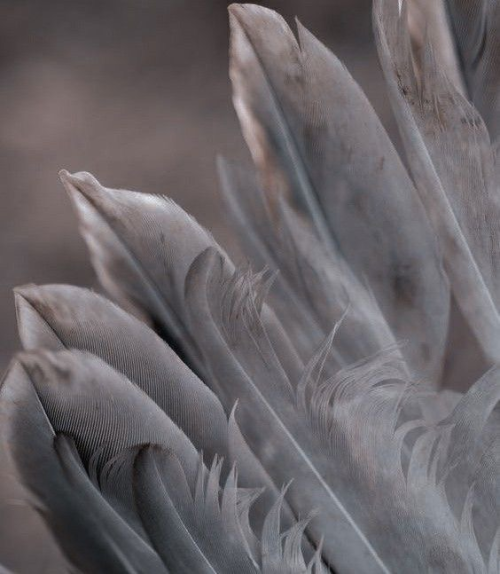
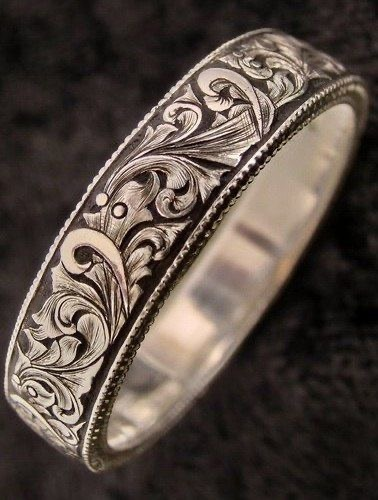
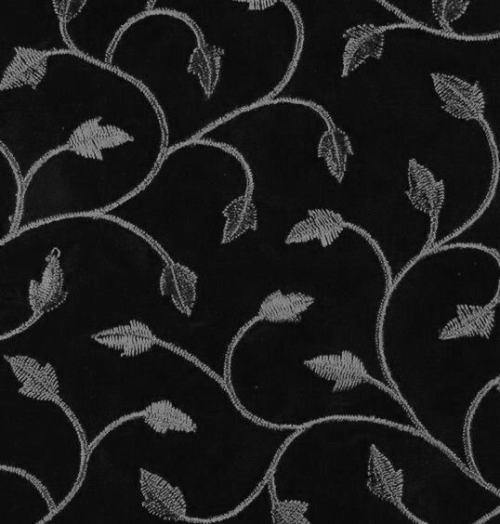
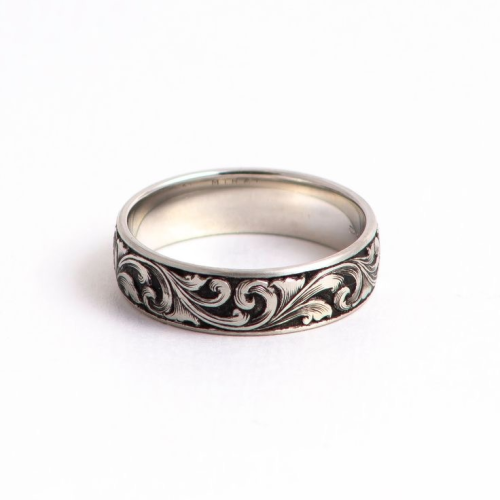
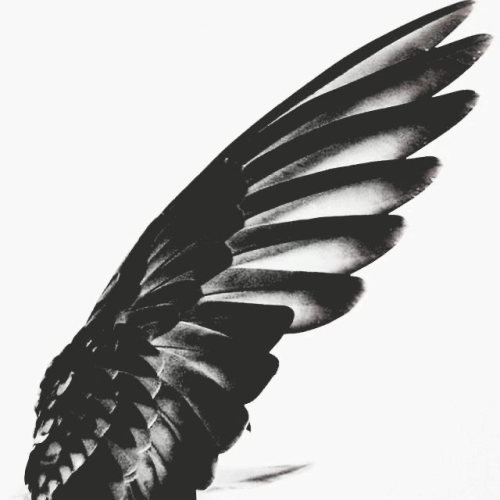
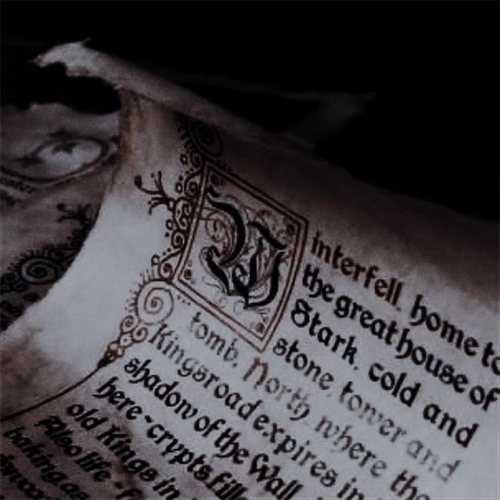
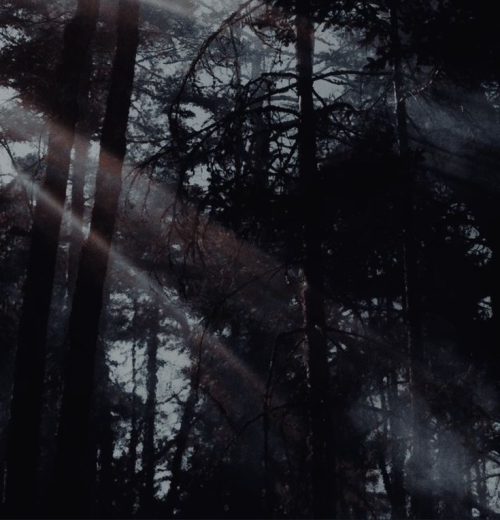
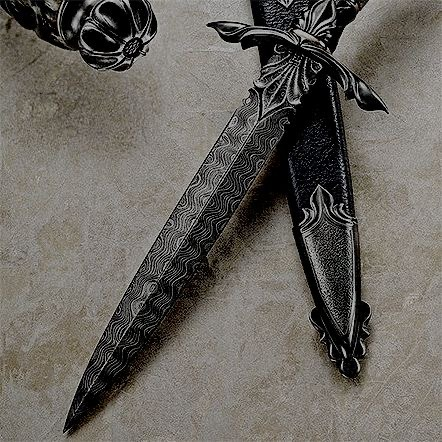
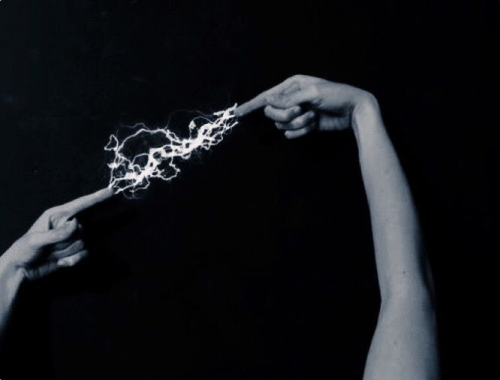
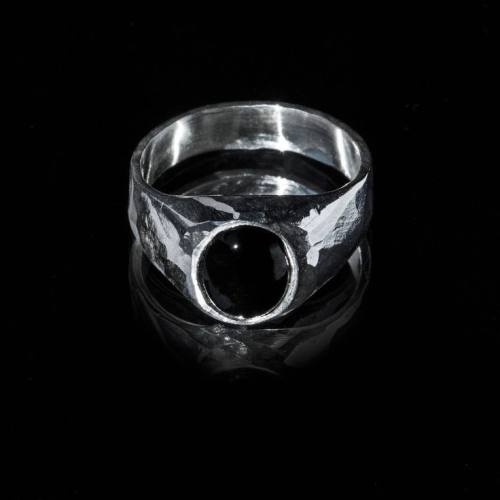
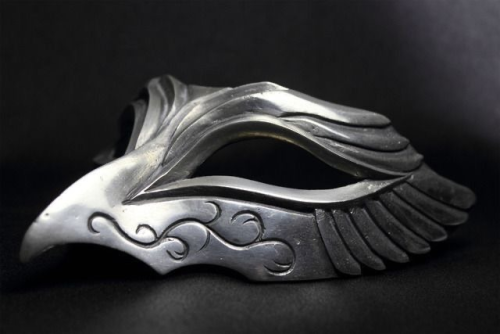
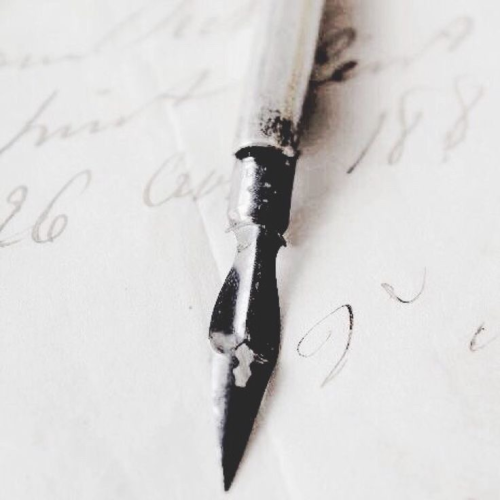
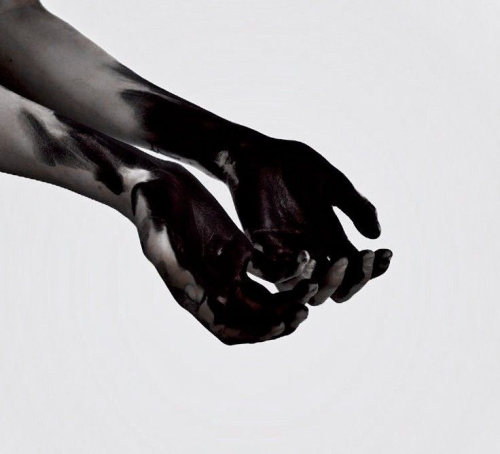
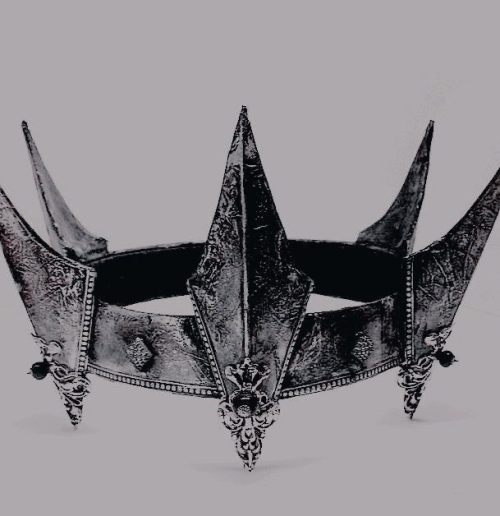
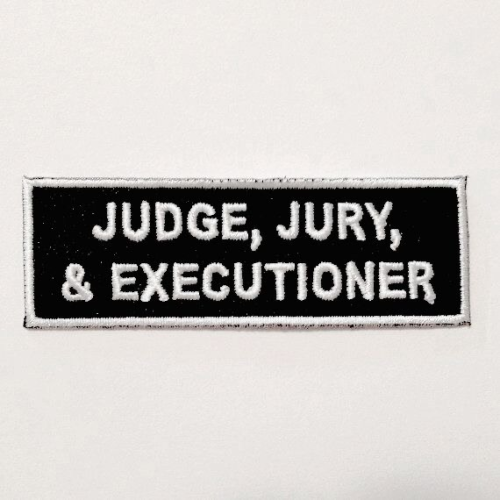
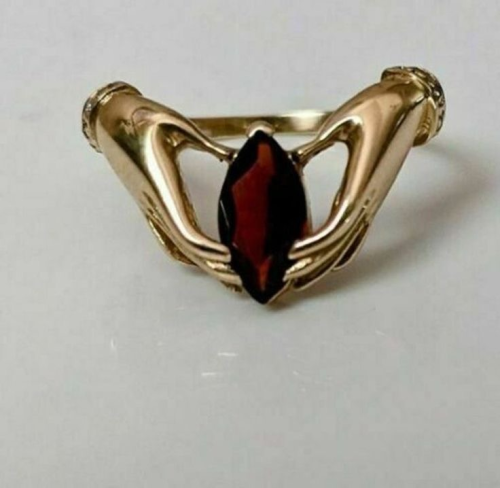
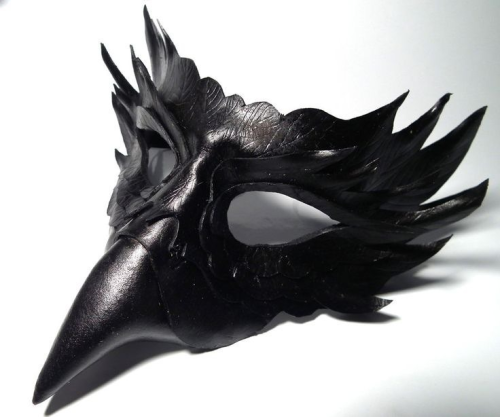
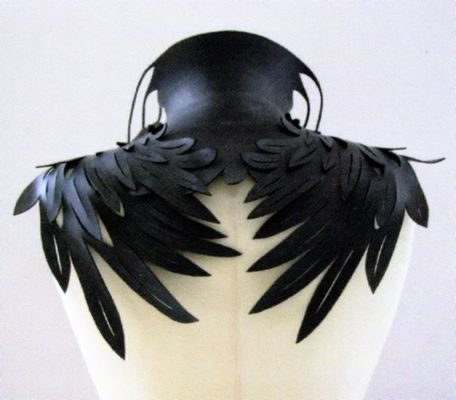
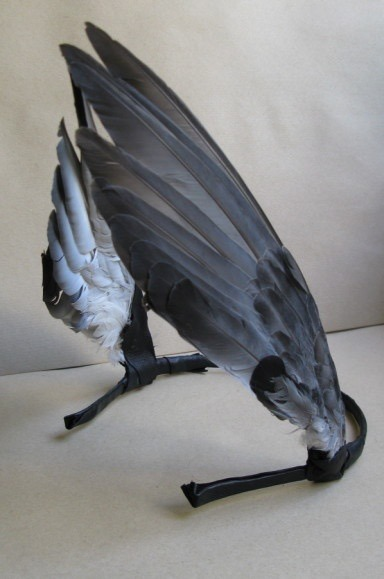
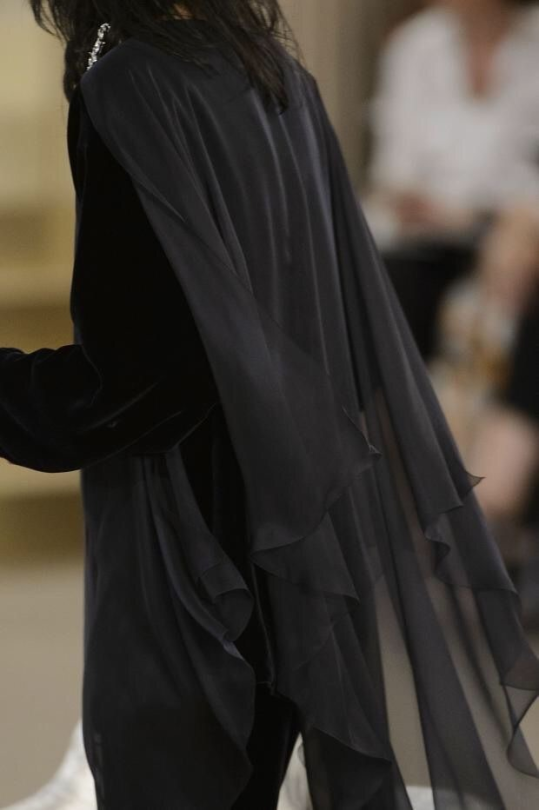
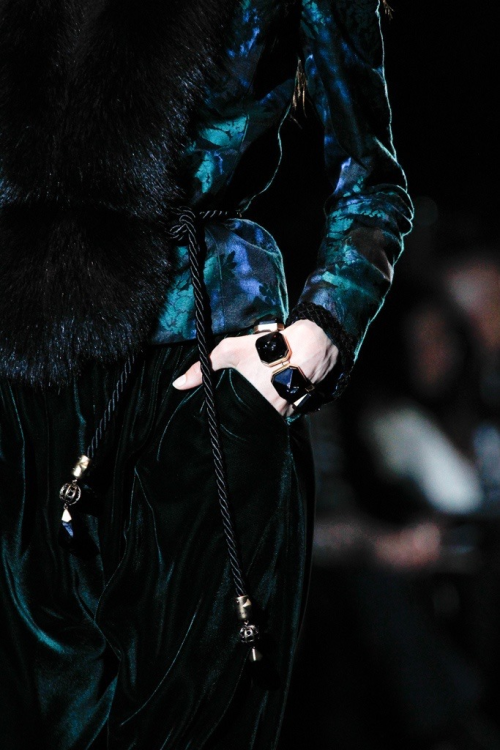
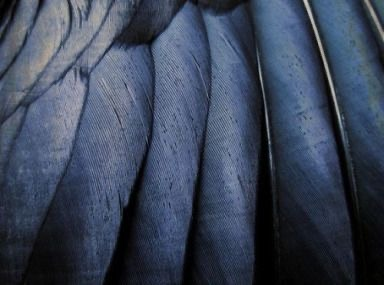
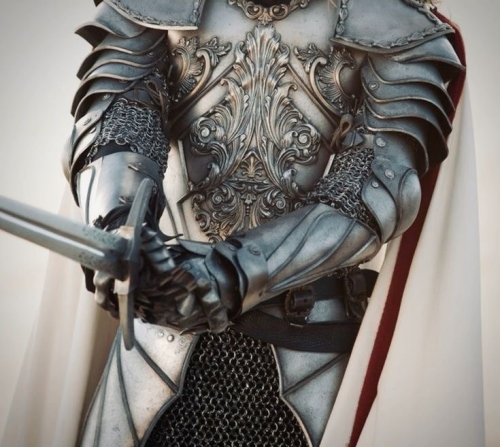
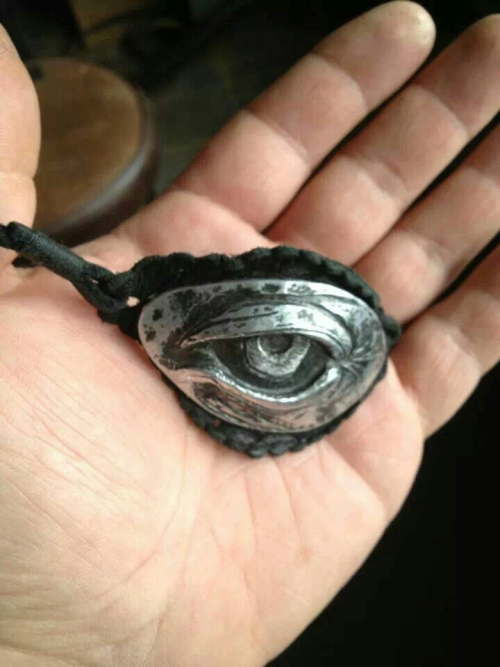
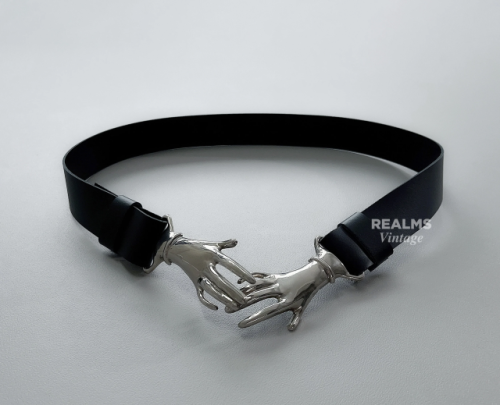
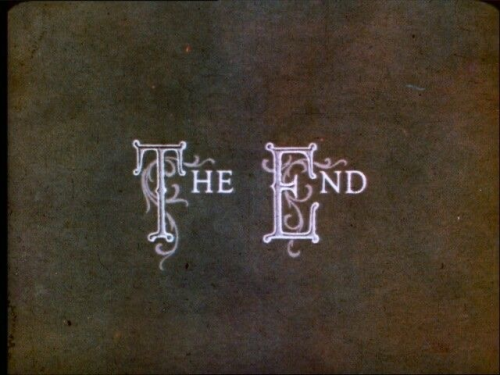
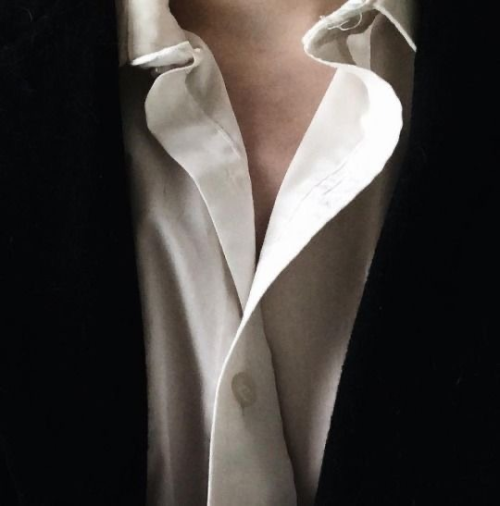
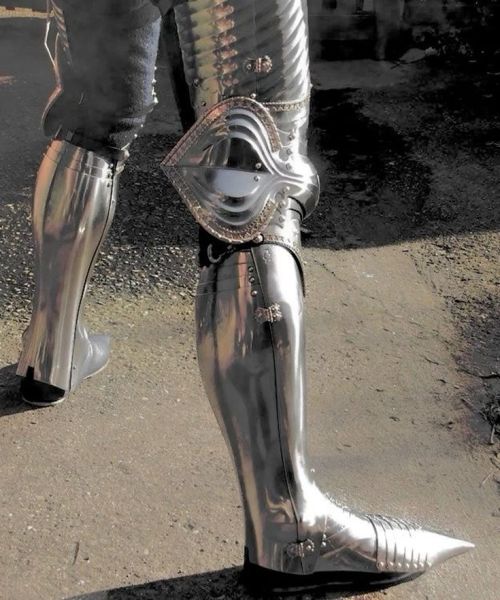
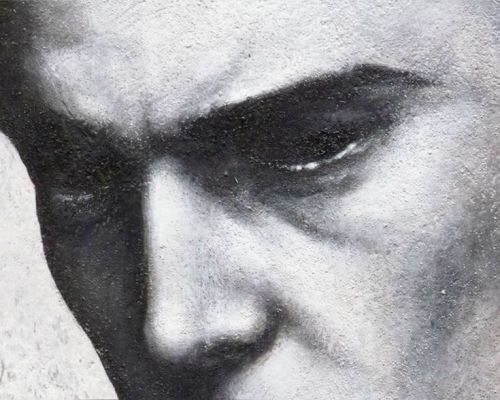
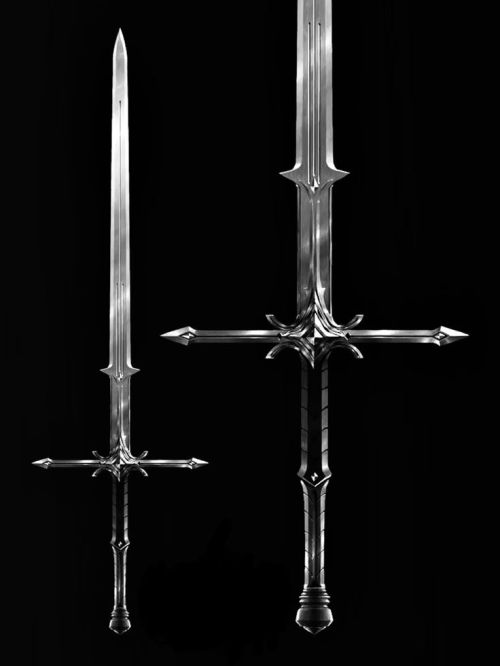
Was thinking. What if
Hear me out
Humanised Storian
Lmao
All i know
Is.
- long. Like. Think long-legged bird
- gray & blue. Skyscraper colour palette
- fuckton of feathers (think poets, birds, freedom)
- fuckton of long, sharp shapes
- his pen form in his hair
- cape!!!! Not like a regular one but still, cape!!!!
- idgaf about you eyes. You know what i mean
Sketched something will flesh it out later mb:

It’s THEM.
THEY'RE ALL HERE.
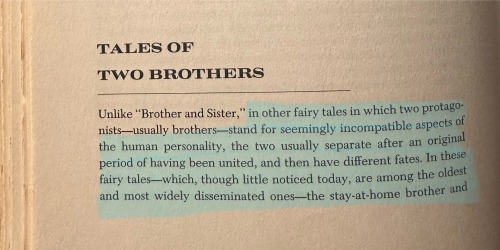
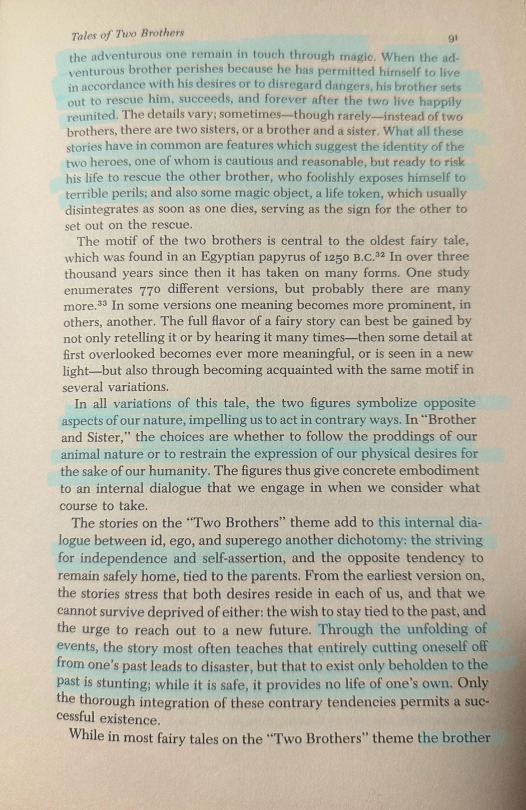


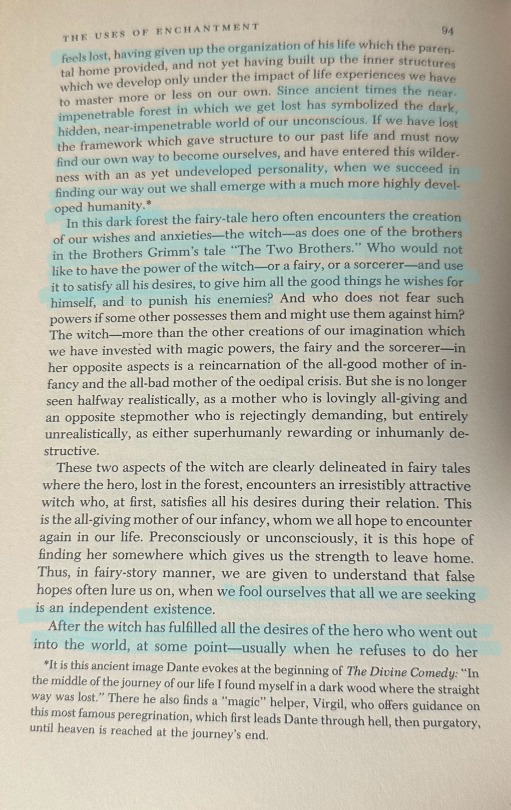
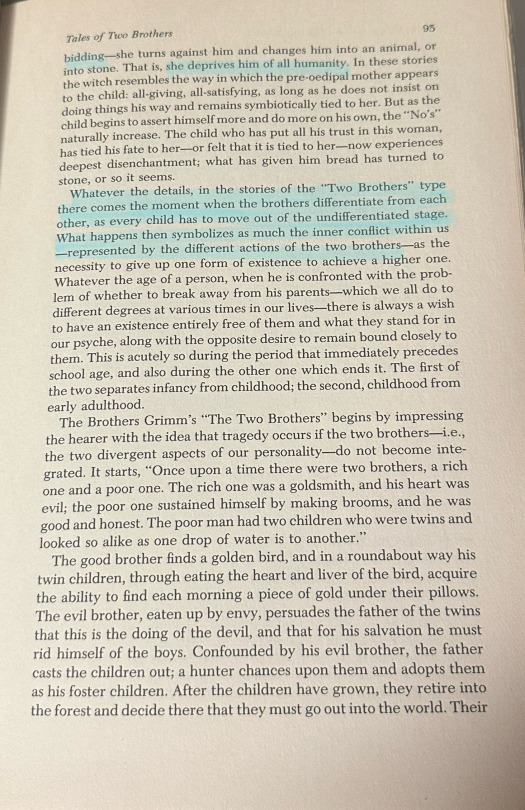
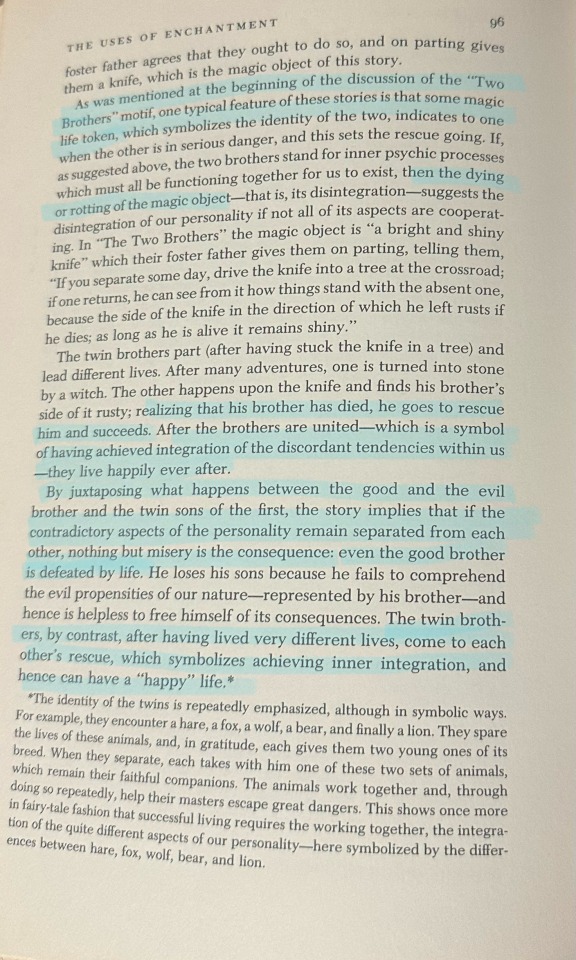
For clarification, I view Adela Sader as the "witch" and the Storian as the "parent," the authoritarian "household" structure, or the magic "life token," even if it has a will of its own and functions differently than a passive object or sign would.
If anyone would like to interpret any of this themselves, have me interpret anything further, or ask a question, you can comment, reblog, or send me an ask, and I'll respond or add more commentary if I have any!
Book: The Uses of Enchantment: The Meaning and Importance of Fairy Tales by Bruno Bettelheim.
The BROTHERS vs. SELF-ACTUALIZATION: Why Rise's Plot is the Way It Is and Why the Brothers' Original Characterizations are Inextricable from that Plot
A continuation of this post. If you haven't already, skim the previous post's photos for context.
First, let's start ourselves off with this poll:
The reason why I've started with this question is because I have potential plans to start the same poll again after I publish a different post I've got in the works, and I wish to compare the before and after results, after I point out a certain few things about Adela Sader and Rafal's conduct in Monrovia.
⸻
Now that that's out of the way:
To begin with the most obvious point: Rhian and Rafal are opposites, two sides of the same coin, as the Bettelheim text repeatedly claims about the pairs of brothers in classic tales. Still, there are other possible "references" or parallels present.
(I can't quite call the perception of the twins' presences in an unrelated text "references" since, well, the text predates them. Its copyright date is 1975 and Rise was published in 2022.)
The brothers in the tales "remain in touch through magic," which already parallels how Rhian and Rafal each realized in Fall that they weren't healing, a sign of their bond/sorcery's decay, their succumbing to the figurative rot.
Rhian and Rafal also have several of the character traits described in the Bettelheim text in common with the other sets of fairy-tale brothers. And, there's the plot of Rafal leaving in Rise and both brothers encountering dangers and saving each other (yes, remember: Rhian's love saves Rafal's life—even if most of the overall action unfairly weighs on Rafal as he fixes things like he's a beast of burden).
Adela Sader, a Seer, is the "witch," to an extent, like the archetypal figure, if not a literal one, for what she represents in the conflict. She and Rafal's interaction could represent a moment of temptation, a common turning-point for better or for worse in literature in general. And Rafal's decision to try to withhold and prevent the inevitable prophecy from coming true speaks volumes about his personality and more importantly, his self-image and what he thinks of himself, as he uses the world he inhabits and its laws as a yardstick with which to evaluate himself. Yet, unfortunately for him and his best-laid plans, he's a complete individual who deserves to view himself as someone apart from existing structures, like Evil, that can prove one-sided.
I'd even go as far as saying: Evil ≠ Never because we've come to associate certain traits with Nevers that not all Evil-doers in the Woods possess. Essentially, we could think: all Nevers are Evil-doers, but not all Evil-doers are (conventional) Nevers. There are many characters throughout the series who serve as exceptions to the "rule" or whatever is considered common practice or Never "culture" and its customs. There are more connotations to being a Never than there are to being Evil. For instance, "Never" can imply "losing-streak" and "poor hygiene," while "Evil," being more detached from the Woods' subjective perceptions, doesn't immediately do the same thing as an evocative word.
(Eventually, I might post something about Rafal's genre-savviness dilemma because it could take too long to explain now and detract from the point of this particular post, which is not mainly about Adela Sader, identity, and Rafal's genre-savviness.)
Furthermore, I will discuss the twins' codependence and how each was never able to disentangle himself from the other of the pair.
Enter vague thematic ideas:
Individuality, interpreted as "free will," in this case.
The separation and "inner integration" of opposing sides (which implies both 1) coming to terms with the existence of the other, conflicting part to the whole and 2) more fundamentally, in actual psychology, reconciling yourself with yourself, knowing yourself, and feeling "complete" so to speak).
Independence and asserting oneself.
First of all, we can observe Rhian's physicality and physical desire versus Rafal's restrained nature. (I'm not saying Rafal lacks physicality at all, but he's not as open with it. He's less wild, reckless, and restless, as far as some of his outward behaviors, if not his thoughts, go.)
Hence, the more Rhian gives into romantic infatuations and the accompanying lust, the more he loses sight of true Goodness and his own humanity. His heartstrings become puppet strings. He gets more animalistic verbs and snake imagery revolving around him as time beats on, as the plot progresses, and he unravels, for lack of having achieved total "integration." And all this is by failure of being a well-adjusted individual or "sane" adult.
And who do we have to blame for stunting his growth and maturity as a person apart from others, with an identity that doesn't rely on external things?: Rafal, who is almost equally teenage-minded.
And Rhian's unwitting antagonist here is not only Rafal. There's one other force working against him: the Storian. Neither of the twins' minds were ever allowed to develop past adolescence and that fact is at least partly at fault for their downfall.
Rafal apparently kept Rhian in check—that's what we implicitly learned in Rafal's absence. The opposite could also at once be true, but that's not relevant now.
Rhian's usual Goodness started to slip and fall to the wayside, probably because he had no one to be better than, no one to show up, and therefore, no one to compare himself to. So, he had no living proof he was doing the right thing for an extended period of time.
This plays into how being the sole actor in any scenario doesn't suit either of the brothers well. Because, they lose sight of anything objective when their fellow marker or "yardstick" isn't present for them to use to see themselves with.
It's not that they don't have a sense of right or wrong; they do. It's that that very sense becomes diluted and ineffectual when the other isn't there.
They becomes skewed—first, turning into the most extreme version of themselves, more like themselves than ever. (E.g., Rafal callously took an innocent hostage and acted in cold blood various times, and Rhian continually fed his sense of vanity). And then, they eventually dropped off at some point, at the "peak" of behaving like themselves, suddenly behaving, or rather, becoming, unlike themselves, which is exactly when the problems start.
For instance, just look at the moment Rhian decides to do what Rafal would do (in Rhian's mind, congruent with his image of Rafal), when he agrees to the bet Vulcan challenges him to. He semi-consciously chooses to fight Evil with Evil, instead of doing what he himself would do, swallowing his pride and protecting his wards, despite the blow to his ego in taking the coward's way out. He doesn't exercise his immaterial authority, (verbally, instead of physically, through a tangible competition).
And generally, before he's corrupted, Rhian has trouble exercising the authority he should've had—another sign of how he never comes into his own. Nor did Rhian have the chance to come into his own, with the authorities that be (Rafal and the Storian) always, constantly hovering over him, trapping him in inaction, in the past.
The strange thing is, in Fall, Rafal admits to having conceded a lot of the time to Rhian in the past, in the face of smaller, pettier arguments, a trend which also represents his yielding to Rhian's (supposedly nonexistent) authority in the early days. That tendency seems self-contradictory of Rafal, but perhaps, even Rafal's authority is situational. He's capable of exercising it over everything and world, but not over his own brother. He can't rein Rhian, the inevitable force, the "fatal" (to invoke both death and "fate") tides of change, the Prime Mover, in.
Meanwhile, Rhian is the inverse of that. Rhian cannot exercise authority over everything and the world, but he can do so over his own brother.
Besides, Rafal, often by sorcery or by outright manhandling, manipulates and exerts his physicality over others and his environment while Rhian rarely does. And yet, Rafal (from what I remember) never so much as lays a hand on Rhian during Rise (in Fall, everything changes and escalates).
I don't yet know why this is, but I think this observation is true most of the time. At least, I haven't thought of any exceptions yet.
The working hypothesis I have is that Rhian (being the brother who chose to stay in the comfort and limited confines of the home, according to the Bettelheim text's ideas) only initially felt comfortable to do anything there. To act, and exercise his authority in an intimate, narrow, personal way.
By contrast, Rafal (the more worldly, well-traveled, and inconstant brother) wants to gain independence from their stifling "home" life, under the Storian, and, as a result, upon his return, could've felt like a stranger in his own home and with Rhian (who's also changed in his brother's absence regardless). Thus, while Rafal can certainly exercise his authority impersonally, he doesn't feel at ease exercising authority over the familiar because it could be too close for comfort, too unsettling, unsettlingly different and the same, like he can't shed the disbelonging that drove him out of the fairy-tale construct of the "home" as a safe, childhood refuge in the first place—when Rhian first questioned his very core purpose and Evil's existence.
(By the way, I came up with a pun: despite being gay, Rhian made Rafal "home-a-phobic.")
To simplify the above, Rhian is homebound, while Rafal is figuratively "homeless" and still somehow recluse-leaning, despite not having a place to seclude himself in, in the end. (During Fall, he clearly doesn't feel safe because he's overly, rightly paranoid that Rhian is out to get him, prompting him to find a "faithful soldier." Then again, we can't fully blame Rhian since Rafal created Evil Rhian by means of a self-fulfilling prophecy.)
In addition, when Rafal possibly (unconsciously?) tries to carve out a place for himself in the world (apart from Rhian and the School) that start of his action reflects a classic adolescent struggle. Due to his role at the Schools as School Master and in being Rhian's brother, exclusive of all else, he's managed to postpone this phase of discovery, or keep this rite of passage from happening. And, this phase almost wouldn't have happened, if he'd never left!
Still, beyond that, he fails at it, at "finding himself," because he doesn't sever himself from the past, even if his "old ties" indeed loosen, by way of the rot affecting the brothers' bond, when he tries to forge new ties in the present (with Hook). And, he returns to his home, to forge anew the old bond he already had instead.
Could that act of returning be a form of regression?
The timescale of all this normal human development, taking place after a century, is really what's most bizarre about it all—hazards of being an immortal.
Perhaps, he was tasked with so much to keep up with and balance that he was in something of a primitive, "survival" mode, even if it looked like he was thriving and performing his job optimally before—and maybe, just maybe, that meant his pursuit of self-discovery was set to "dormant" for so long that it hadn't registered on his radar when the process began.
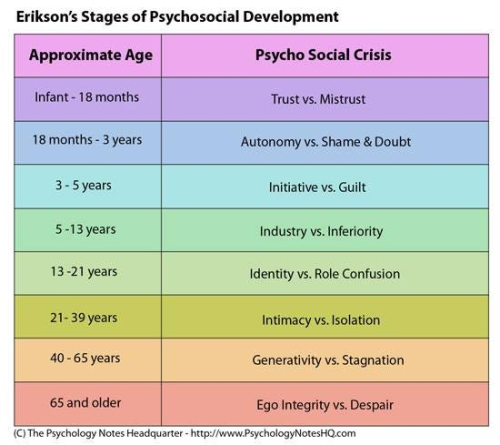
I believe the brothers are approximately around "Identity vs. Role Confusion" and "Intimacy vs. Isolation" (the latter concerning Rhian in particular) and that they start in Foreclosure and end in some perverse, tragically incomplete (or prematurely cut-off in Rafal's case) form of Moratorium, which, ironically, bears similarities to the concept of death, or even the phrase memento mori, for, mortal time is limited, and we must change before our final deadline—a deadline neither of the brothers had and hadn't the need to conform to or act on, as long as their immortality remained intact.
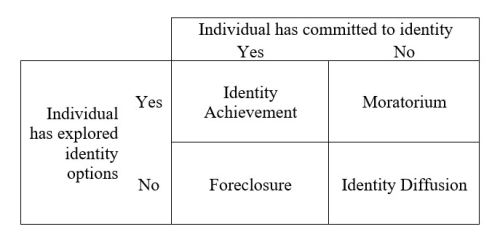
For reference:
"Identity confusion/diffusion occurs when adolescents neither explore nor commit to any identities. Foreclosure occurs when an individual commits to an identity without exploring options. A moratorium is a state in which adolescents are actively exploring options but have not yet made commitments. As mentioned earlier, individuals who have explored different options, discovered their purpose, and have made identity commitments are in a state of identity achievement" (Source).
Also, I want to point out that Rafal never did give up "the organization of his life," mentioned in the Bettelheim text, which may've interfered with his identity formation, fulfillment, and attainment of relationships outside of his with Rhian.
He wouldn't relinquish control, ever, unless it was pried from his cold, dead hands. (And it was.)
Perhaps, he was reluctant to let go of order? But, aren't we all prone to wanting order and flattening complexity as humans anyway? It's not just his fault as an individual; it's probably our collective fault as a species.
(Does anyone see this from a different perspective? I might be sympathizing with him too much.)
Moving on, the deep, dark forest of the soul is probably a common idea that other authors, like Professor Maria Tatar, have explored, if I'm remembering that correctly. I guess we could just establish that the further Rafal ventures into the Woods, and the more he distances himself from Rhian, and the worse off he is. But, I don't think all of that is truly proportional in a traceable way, considering that lots of his worse moments, like his trial sentence, happen at the Schools.
So, why don't we just consider the whole of the Woods dark and primal, and susceptible to the "cauldron of the unconscious" and the worst urges of humanity's Evil, and call it a day?
Gavaldon would have to be the separate space then, but it's no more civil than the Woods are, as, it's still distinct yet part of the Woods all the same in its enclosure.
In fact, let's just apply the dark woods-baser urges analogy to the world like a blanket.
Back to Adela Sader now.
She prompts anxieties in Rafal that he wouldn't have held or have even seen within himself, if not for her making him aware—aware to his detriment, when he chose knowledge over blissful ignorance, accessing the "forbidden" or the irreconcilable truth of a prophecy he didn't have the ability to integrate into his current worldview without collapsing what he knew to be true, when he metaphorically opened his eyes and didn't turn away.
This decision to ask for an direct answer to the future (instead of discovering and interpreting it for himself in real time) led him further away from self-actualization. (No, I don't mean his eleventh-hour Good revelation. I mean simply him as a underdeveloped, immature human being, however mature he may seem.)
Anxiety can drive people mad and meddle with how clearly they see the world (trust me on this one), and worse, this artificial anxiety Adela Sader gave him was imposed on him because he couldn't have known any better to not seek out or reject this knowledge. No one can forget something once it's known, once they're "awakened" to it.
Lastly, if anyone wants me to probe anything more or think on any of the parts in more depth, tell me. I will also provide clarification and context, and answer any questions, if anyone would like.
See the reblog for the second poll.
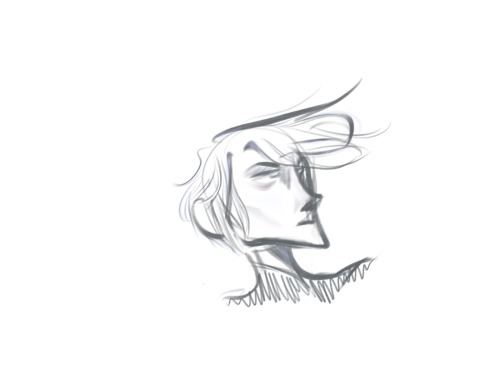
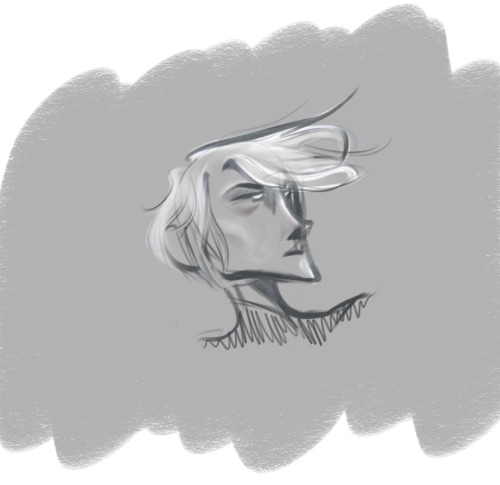
Tw: Blood
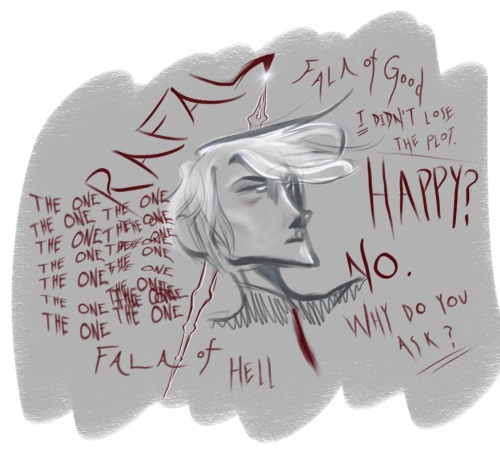
So, there’s a story behind this sketch. I don’t know why, but when I try to draw something with a plan in mind, it doesn’t turn out how I want it to, and this started as just a simple, dramatic little sketch in the corner of the canvas, hence the bad resolution again. It’s actually minuscule. And—I ended up adding more details to the sketch since I was starting to like it. Then I thought: hmm, what could make this better? BLOOD. Definitely blood. And that’s it.
Have one more minimalistic version without all the text also:
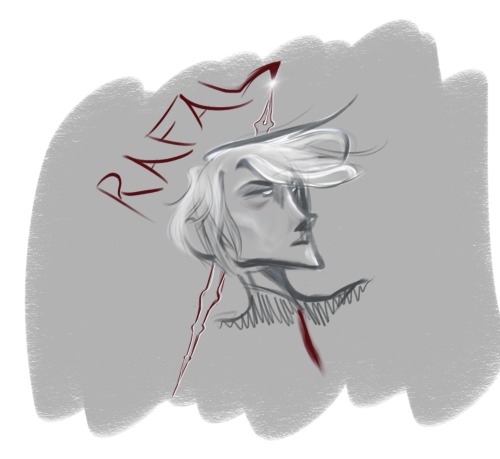
personally i love rubbing salt into wounds
The Storian to the brothers, centuries ago: I've rescued you from mediocrity. Be grateful.
⸻
Rafal to Rhian: I've rescued you from being alone. You have me. You don't need anyone else.
⸻
"Rafal" to Sophie: I've rescued you from mediocrity and from being alone. Why aren't you happy?
Sophie: Were you ever happy?
Agatha: Did anyone ever bother to ask what we wanted?!
"Rafal": No? Why is that important?

